#and it leads to him developing empathy and becoming a kinder person
Photo
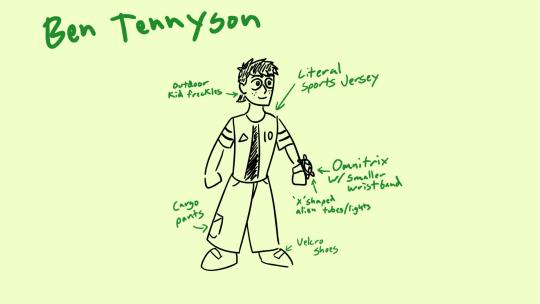
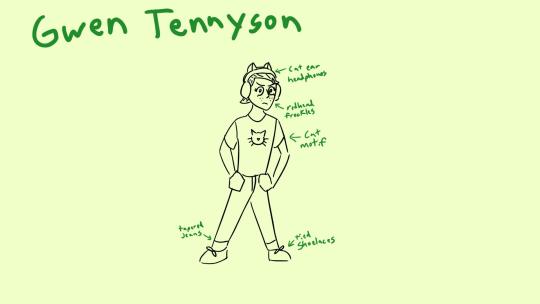
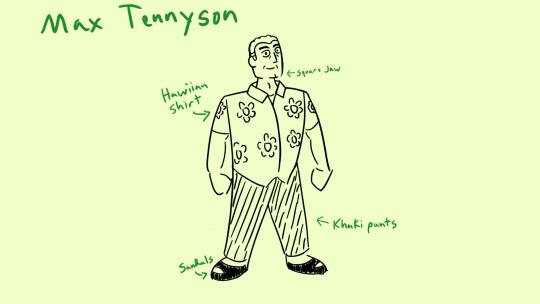
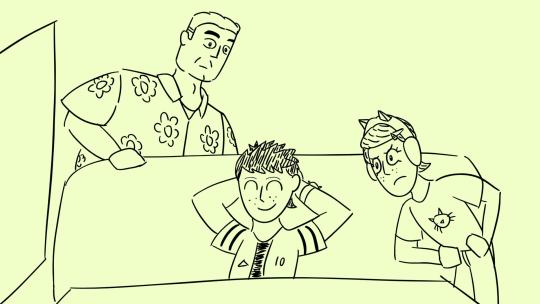
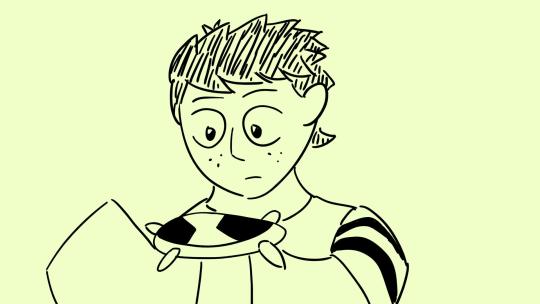
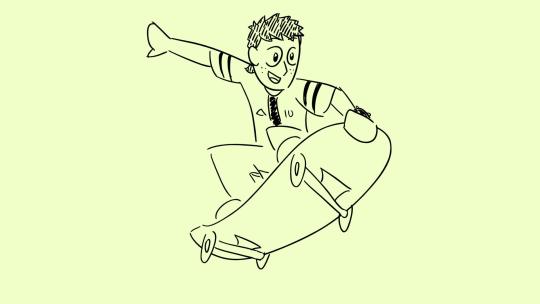
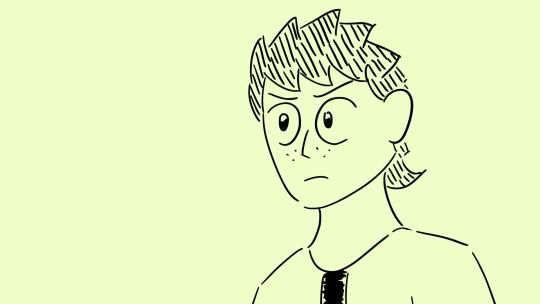
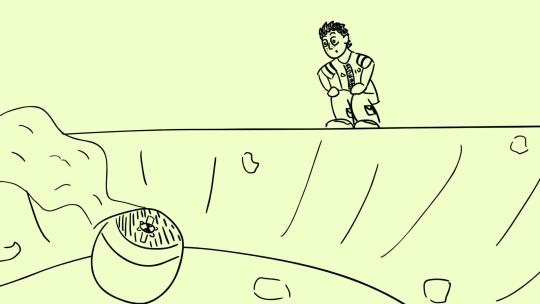
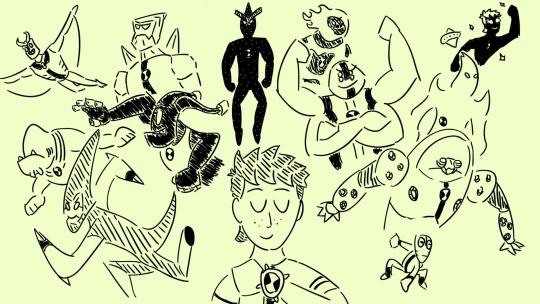
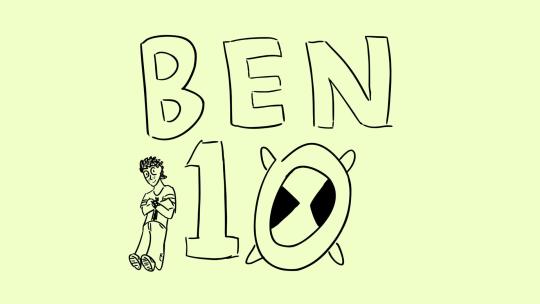
My Ben 10 redesigns, concept storyboards, and reboot ideas masterpost
as seen in https://youtu.be/19MpY8dVvwk
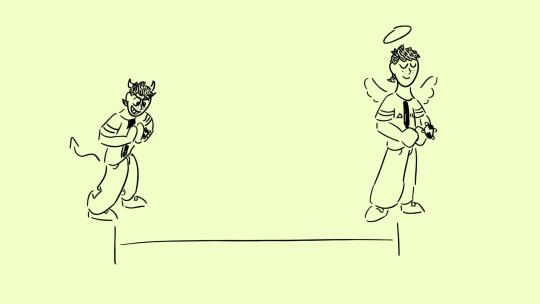
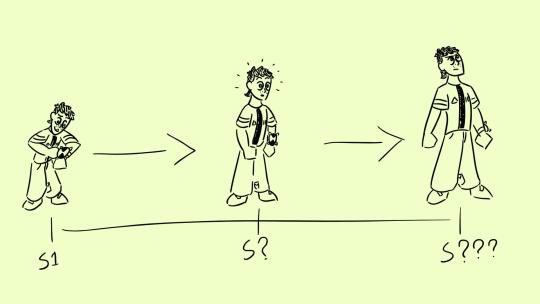
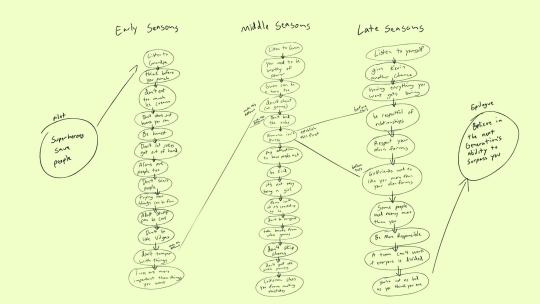
1. Ben Tennyson shouldn’t just grow over the course of each episode, he should grow over the course of the entire series. Here’s a chart of loose ideas I made to organize them & keep them from contradicting each other. If Avatar: The Last Airbender can do character arcs over the course of multiple seasons, then we can, too.
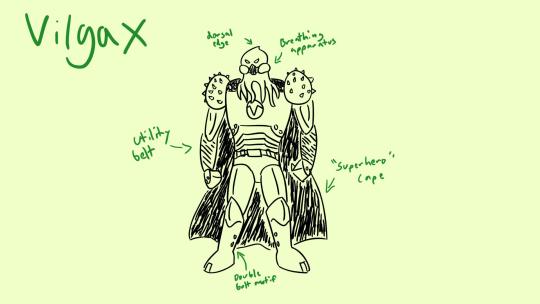
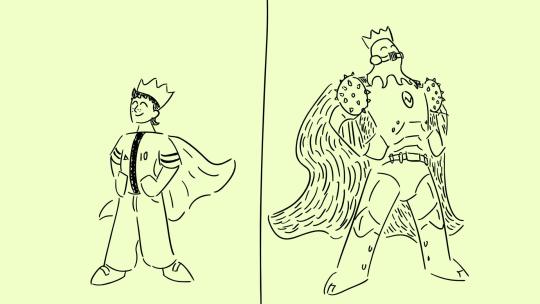
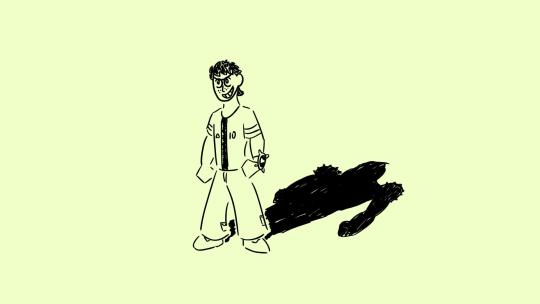
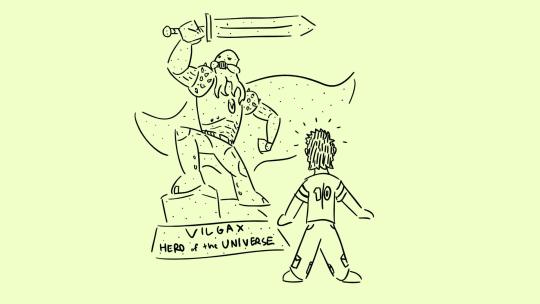
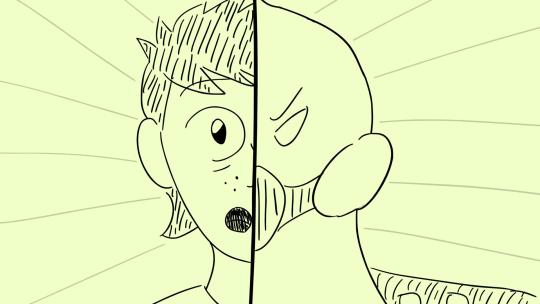
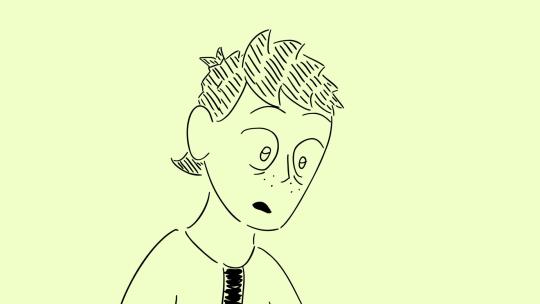
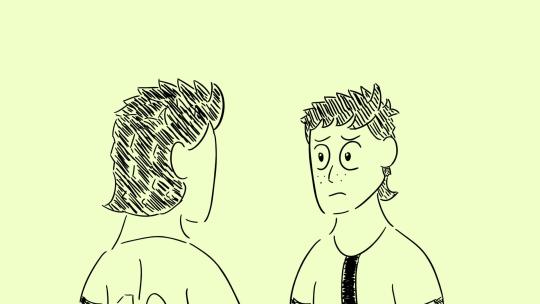
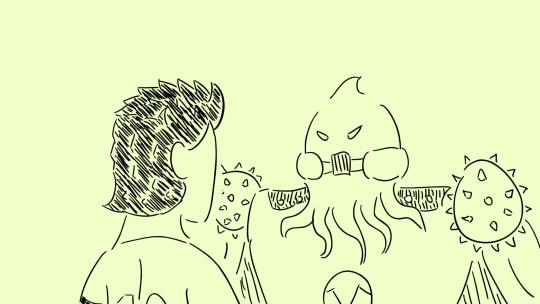
2. Ben Tennyson’s villains should be darker reflections of Ben’s own flaws and weaknesses. It is by recognizing these similarities that allows Ben to break free of them and become a better person.
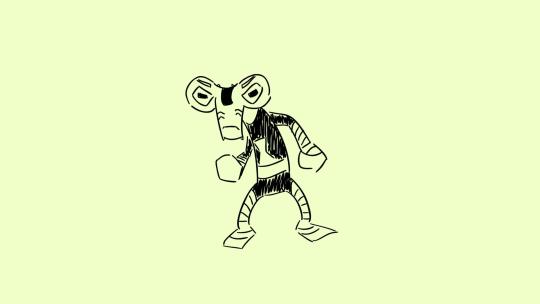
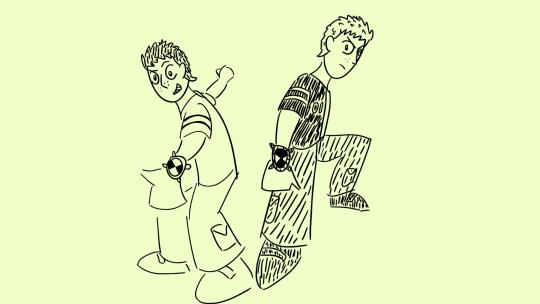
Albedo is a fun example of this because he’s literally Ben’s doppelganger, not unlike Shadow the hedgehog from the Sonic franchise.
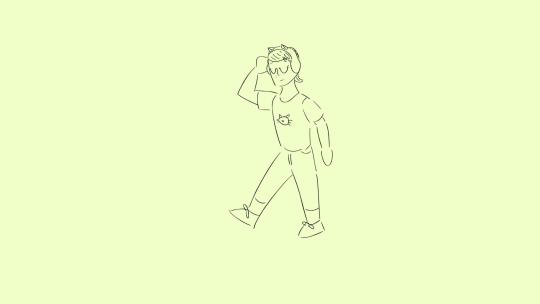
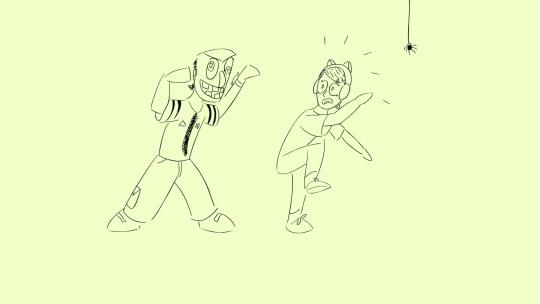
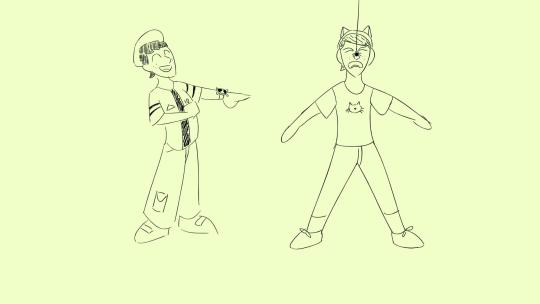
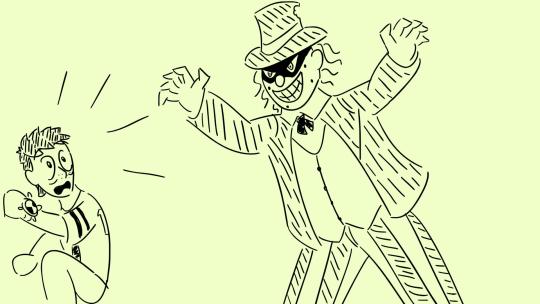
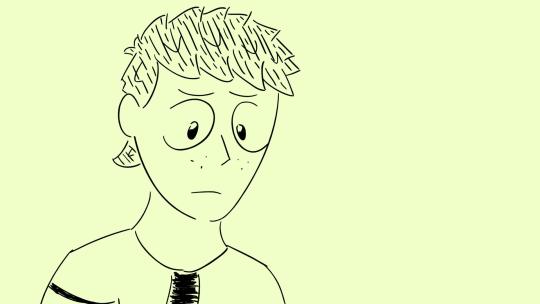
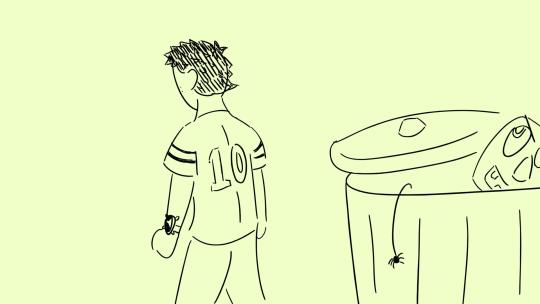
regardless of who the episode’s villain is, we can always write parallels between them and Ben. Want to make a Zombozo episode? Make it about Ben making fun of Gwen’s phobias until Zombozo triggers Ben’s phobia of clowns, where Ben learns that scaring people isn't so fun once you know what it’s like to be scared.
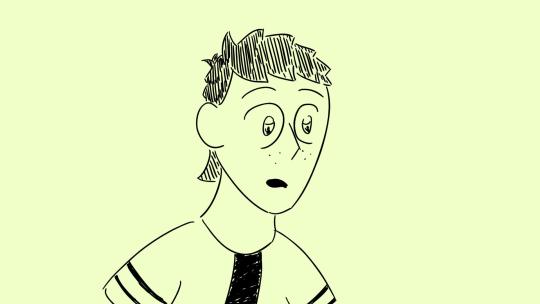
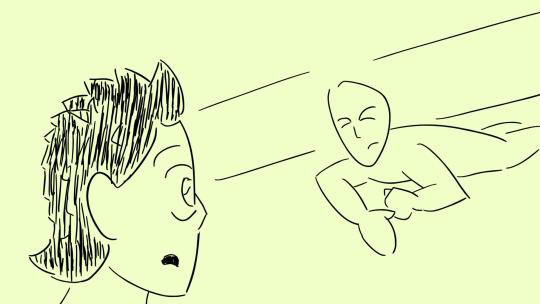
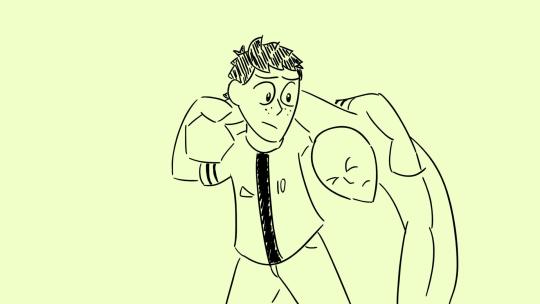
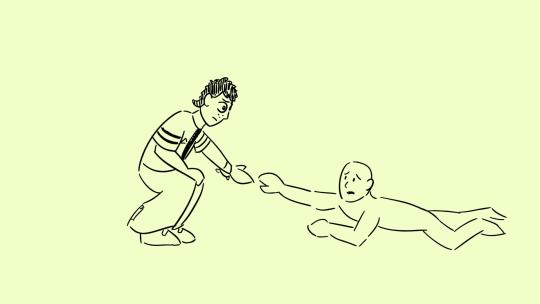
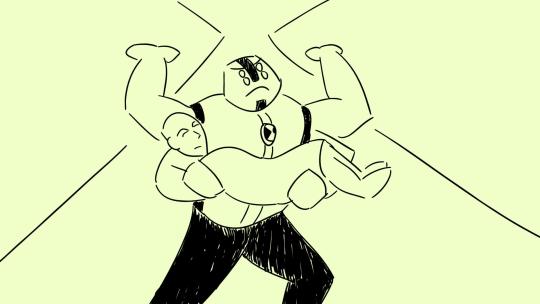
3. The central emotion behind all of Ben’s growth should be empathy. The Omnitrix gives him the power to transform into a completely different alien species and view the universe from its eyes, which should lead to Ben seeing himself more in other people and thus becoming a kinder, more understanding person. He becomes a superhero not by simply having power, but by empathizing with people enough to rescue them.
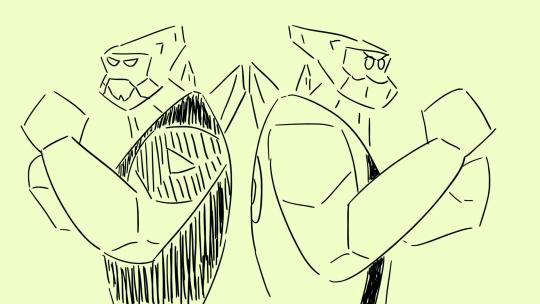
Tetrax Shard and Ben teaming up.
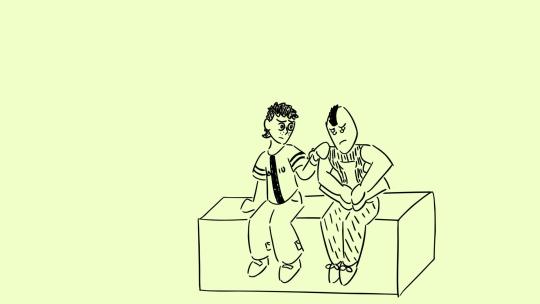
Ben comforts Manny/an original tetramand character
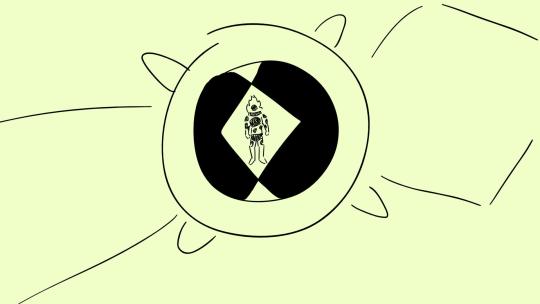
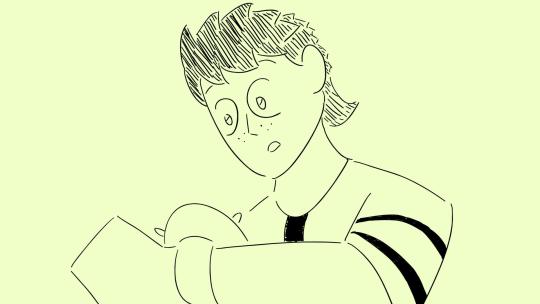
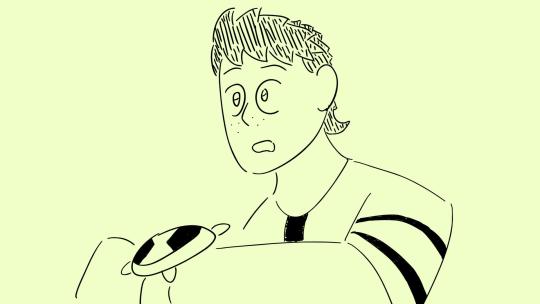
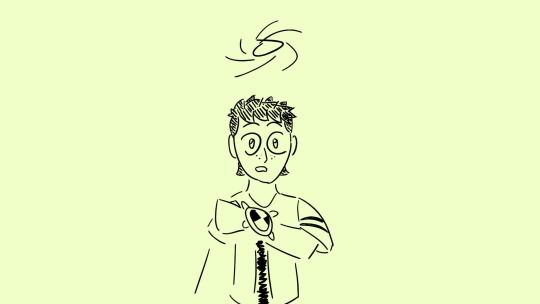
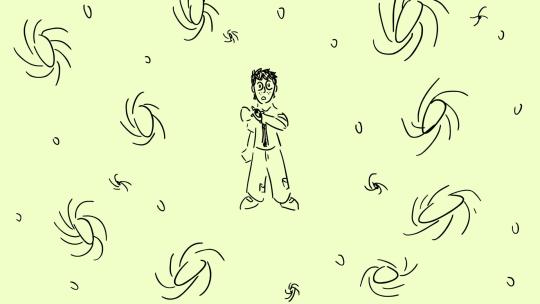
It is the Omnitrix that helps Ben develop his empathy, to the point that he sees himself in aliens that he has previously transformed into. It is the Omnitrix that forces Ben to realize that there is more to the universe than just him.
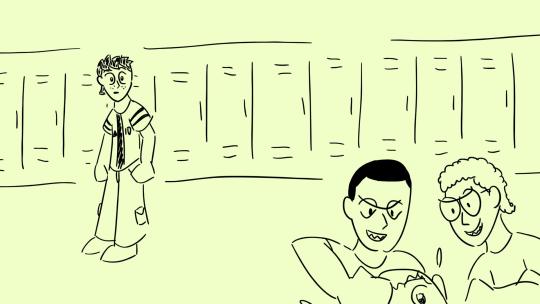
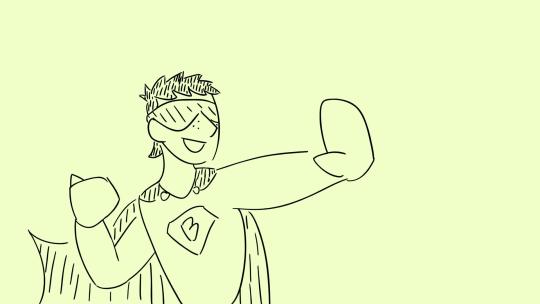
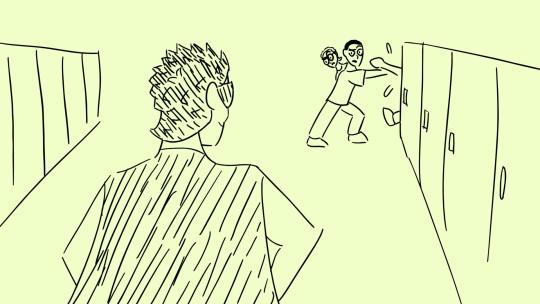
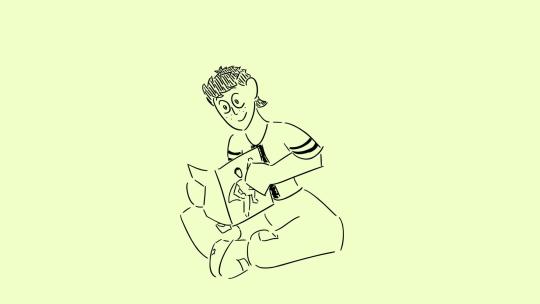
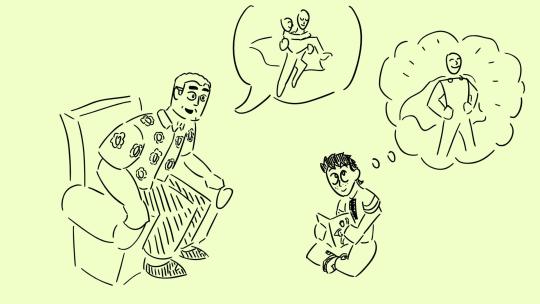

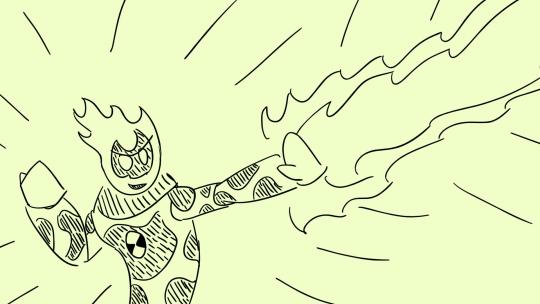

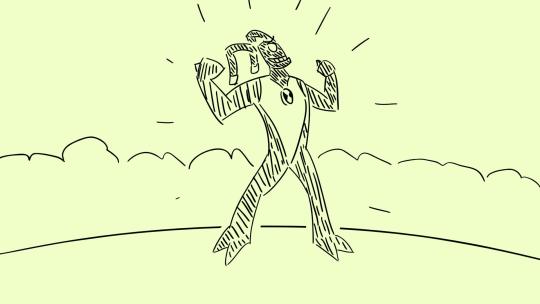
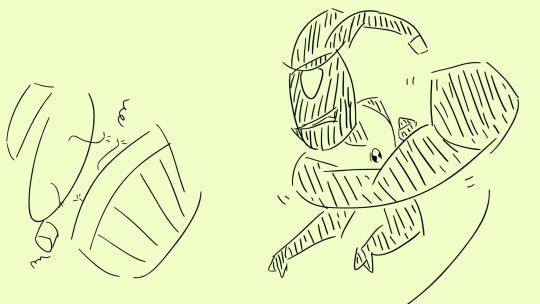
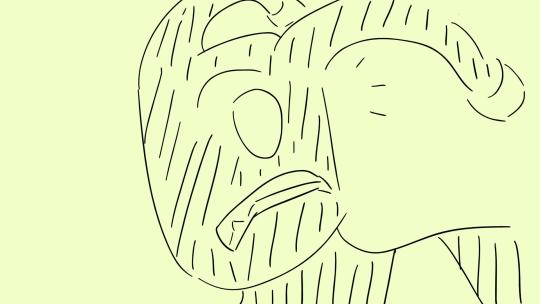
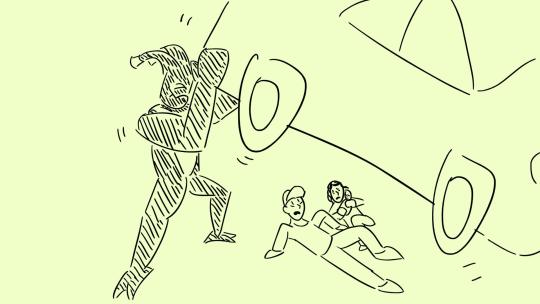
My ideal Ben 10 pilot would involve Ben spending the last day of school being a witness to bullying, but fantasize himself as a superhero instead of meaningfully intervening, needing to be told by Grandpa that superheroes are supposed to be about rescuing people (in the same vein as Kid Cosmic), Ben experiencing the realities of superpowers by almost burning down their campground as Heatblast, and fighting Vilgax’s robots as Feedback, followed by saving people as Feedback once everything finally starts to click for him.
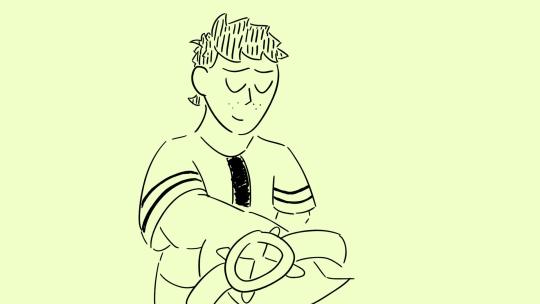
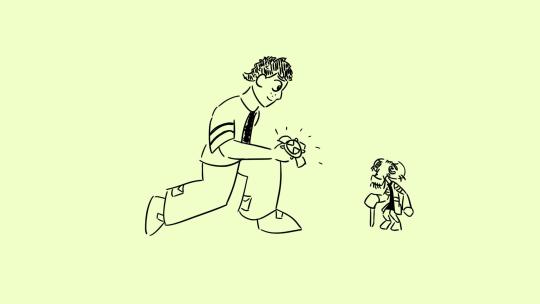
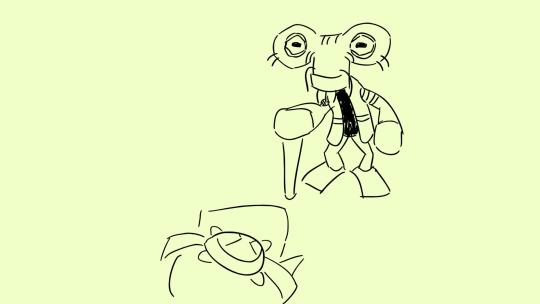
If there is a story arc centered on Azmuth, the creator of the Omnitrix, it should end with Ben realizing that he should return it to its creator, but because Azmuth can see that his intentions for the Omnitrix have been fulfilled via Ben’s developed empathy, he allows Ben to keep it.
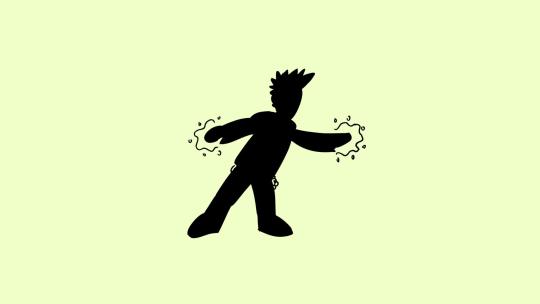
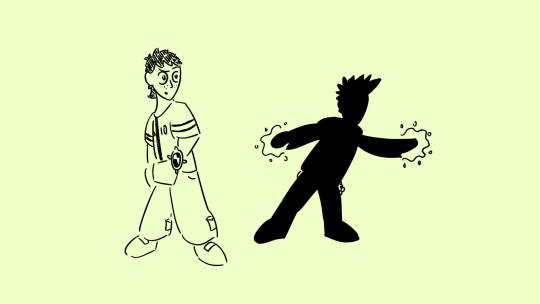
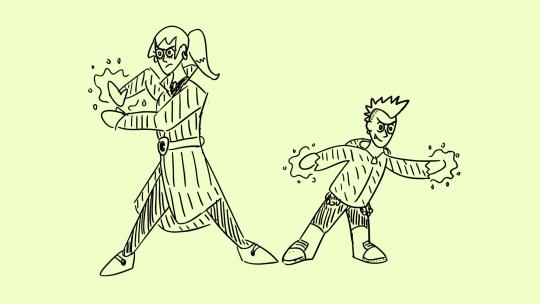
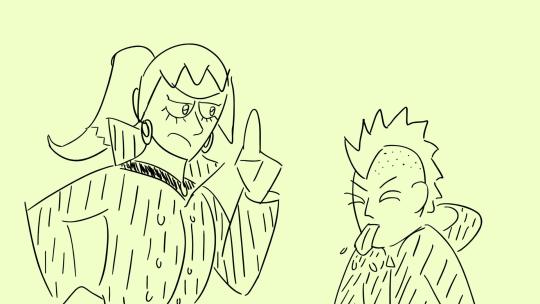
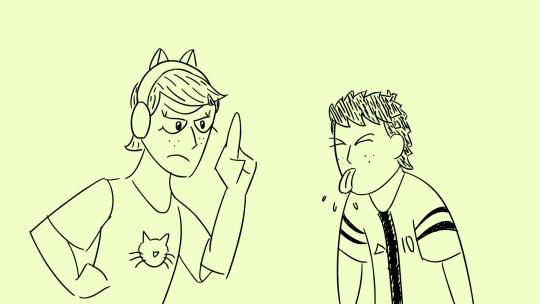
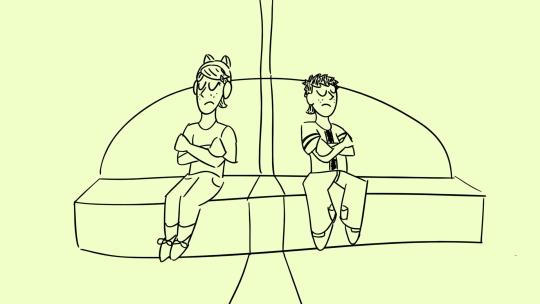
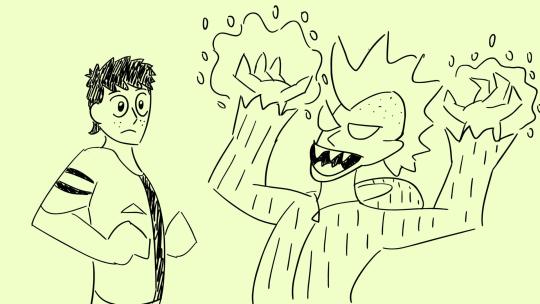
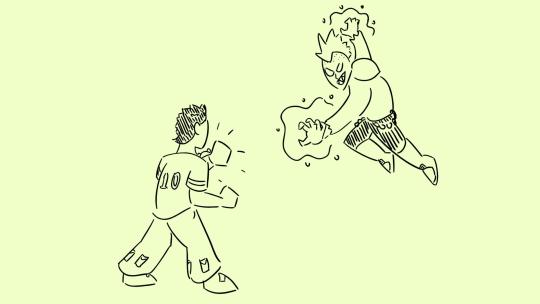
My Ben 10 OC: Cursebreaker, Since Charmcaster is Gwen’s nemesis, Charmcaster could have a little brother who can act as Ben’s magic-based nemesis, who can reflect Ben’s rambunctious id as well as his rivalry with his older sister figure. Ben & Gwen may be cousins, but their similarities to Charmcaster & Cursebreaker can show us that they're more like siblings.
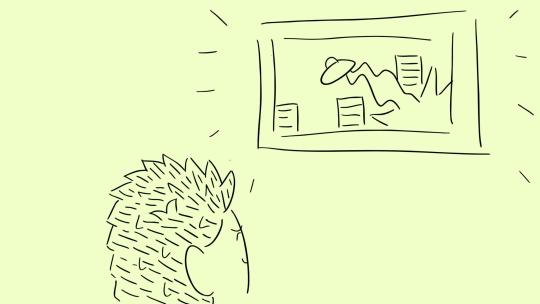
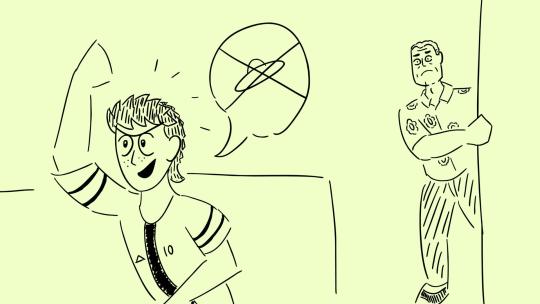
Ben’s new anti-alien rhetoric deeply disturbs Grandpa.
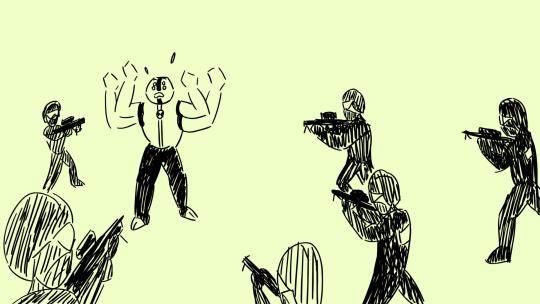
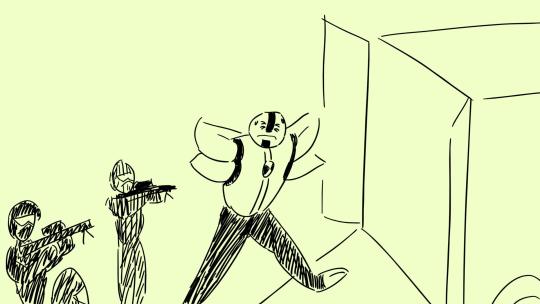
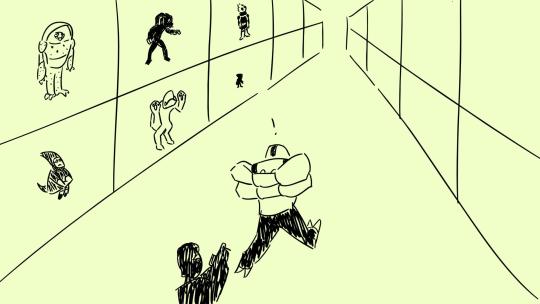
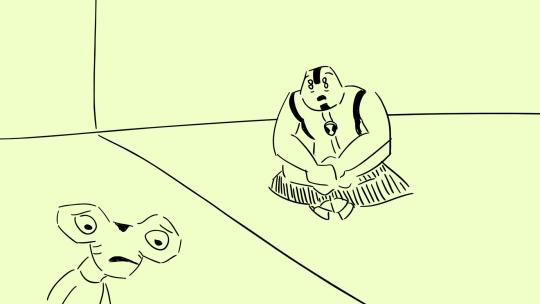
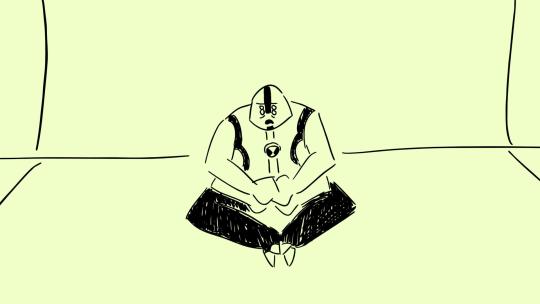
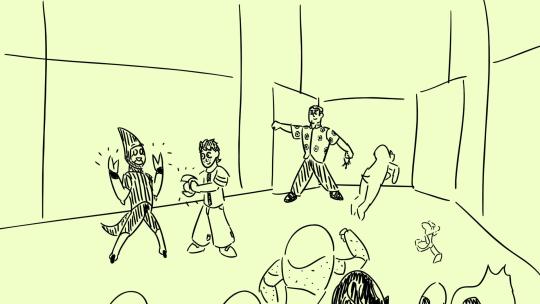
An early episode of the series could involve Ben watching so many alien invasion movies that he starts to develop prejudices against all aliens whatsoever, but when Ben gets captured by alien ICE while transformed into Fourarms and sent to alien prison, he learns that viewing aliens as evil invaders can be dehumanizing and helps free all the other alien prisoners once Grandpa arrives to rescue him.
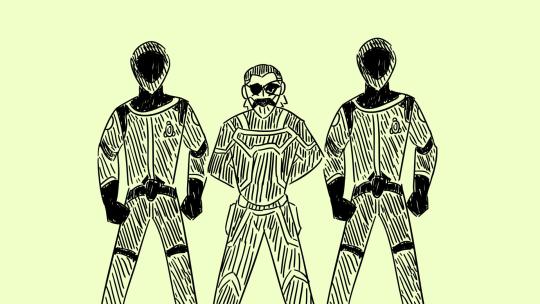
If we’re going to bring back the Plumbers, the super-secret police force that Grandpa Max used to be part of, my choice would be to make them corrupt and evil, signified by their re-branding into ‘the Rooters’ and led by a villainous eyepatch-wearing Phil Billings.
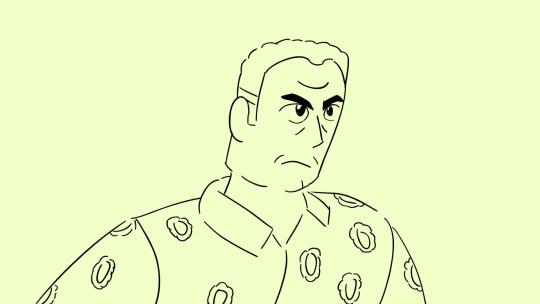
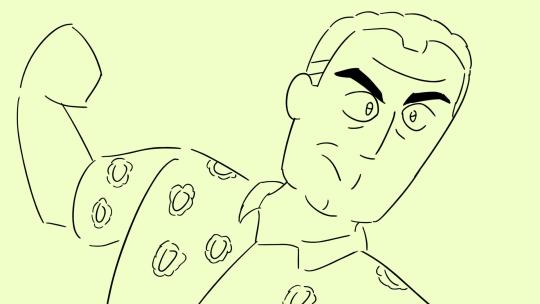
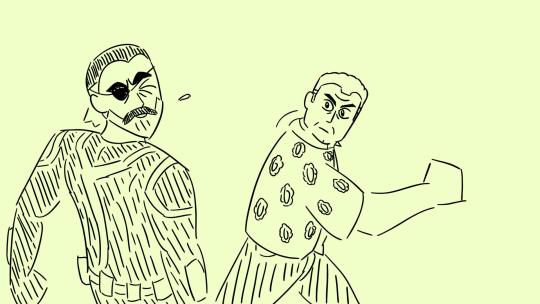
This change in writing would not only prevent the heroes from having a giant safety net to help them with their problems, it would give Grandpa a character arc where he has to confront his own blindness and work to dismantle the system he helped create.
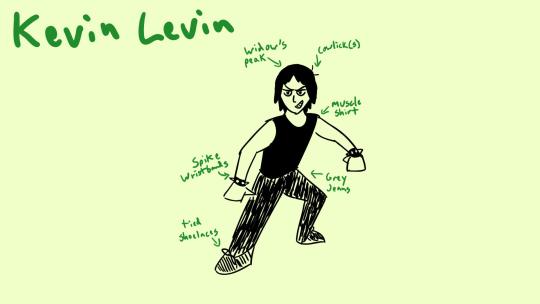
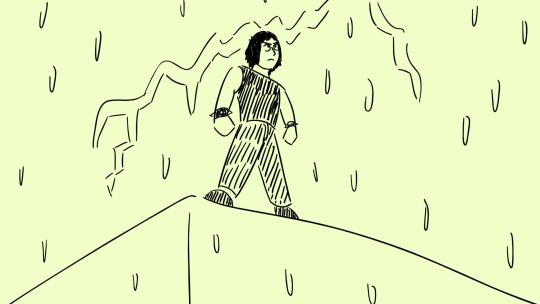
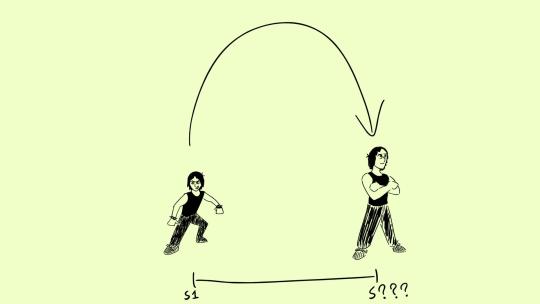
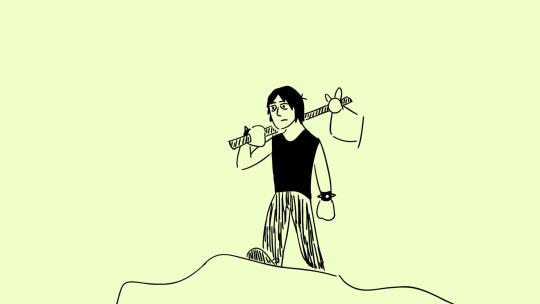
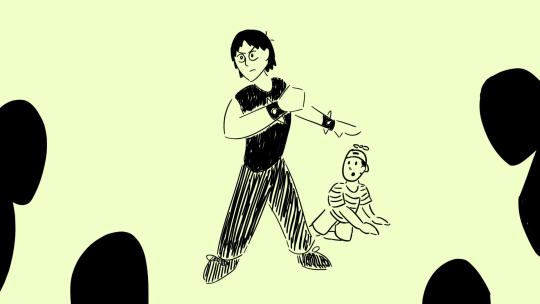
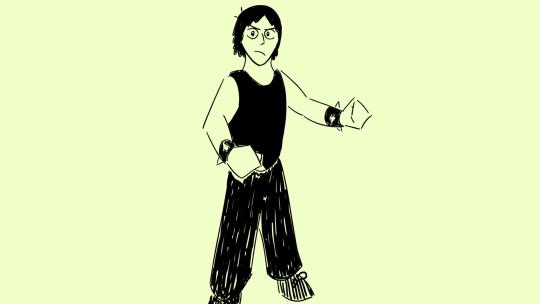
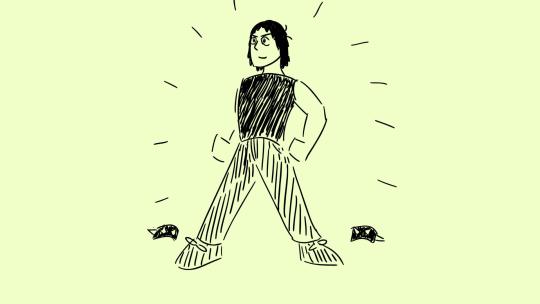
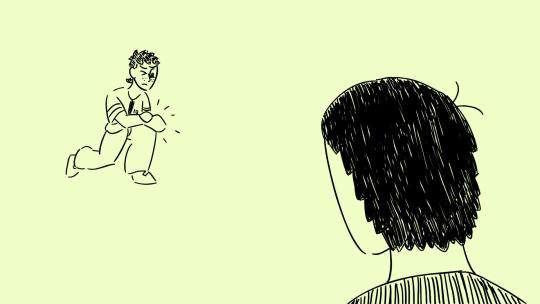
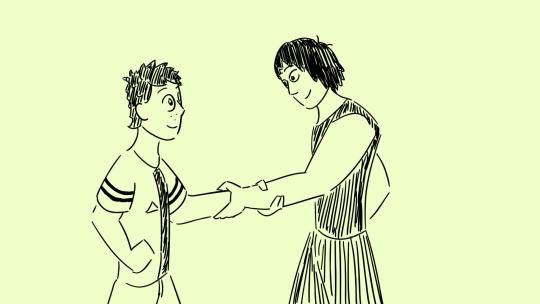
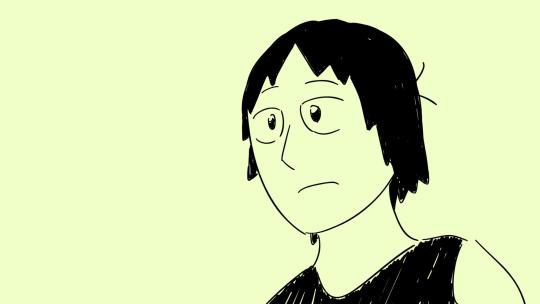
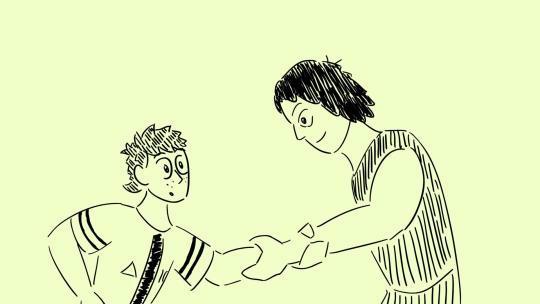
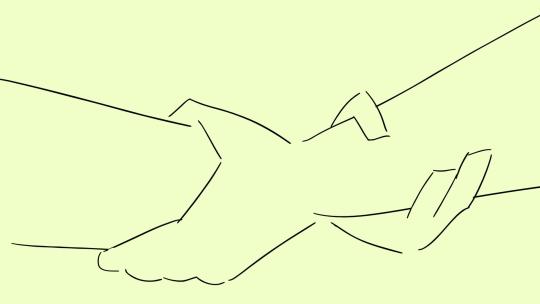
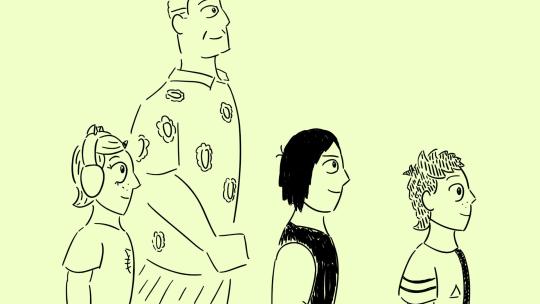
I would write Kevin Levin to have a character arc where he goes from being a villain to an antihero, complete with his own ‘Zuko Alone’-style episode, to becoming a member of the main protagonists in the final season, because what Kevin really wants isn’t revenge against Ben, it’s to become friends with him again.
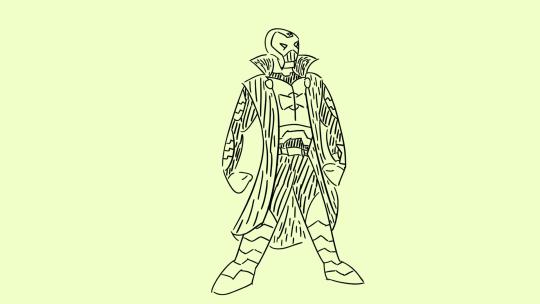
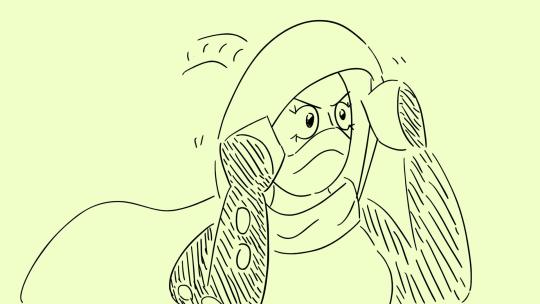
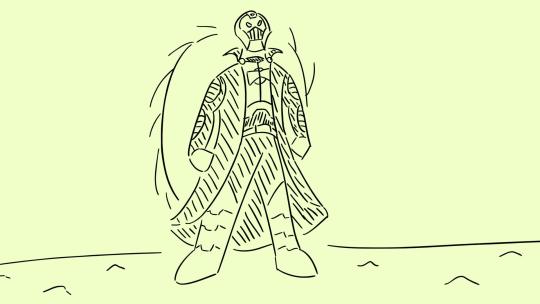
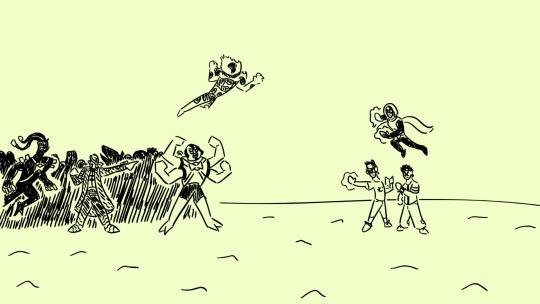
Eon, the evil version of Ben Tennyson from an alternate future, should receive his own episode/arc in which a future Gwen time travels to prevent present-day Ben from becoming an evil tyrant who rules the world (in the same vein as Kamen Rider Zi-O or Kim Possible: A Sitch in Time). Either Eon has alternate selves he can summon, or can use the Omnitrix’s “command mode” to allow the Omnitrix aliens to fight on his behalf. Perhaps future Gwen believes that this is the catalyst for Ben’s villainy?
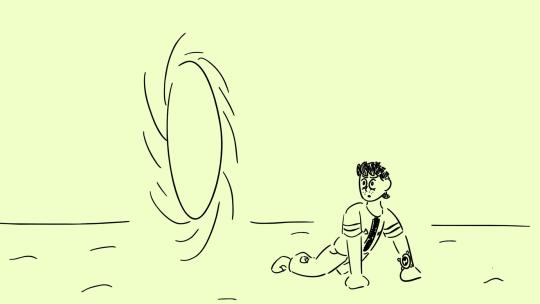
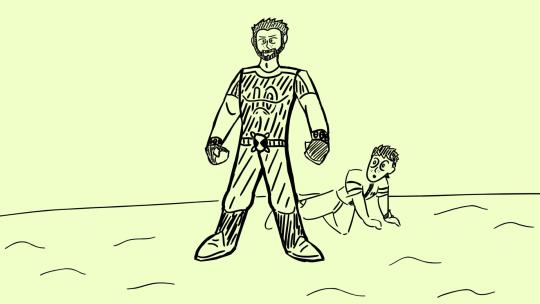
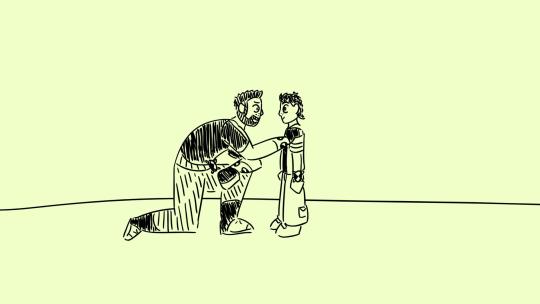
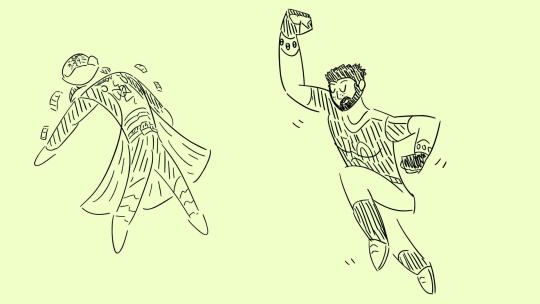
When it seems that all is lost, it is Ben’s adult self Ben 10,000 who appears to save the day, stop Eon, and give our Ben a pep talk to restore his confidence, because the episode/arc was secretly a Ben 10,000 episode all along. Notice that the Omnitrix is on his belt instead of his wrist- maybe Ben actively takes off the Omnitrix to stop Eon’s future from taking hold, and this is what allows Ben 10,000 to exist? In any case, I want it to be a decision that our Ben actively makes that stops Eon, and the appearance of Ben 10.000 is the victory lap.
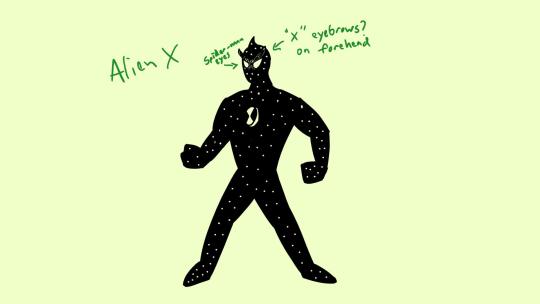
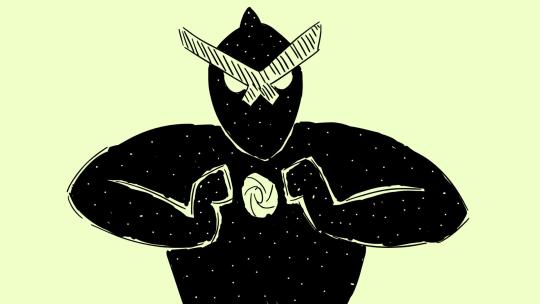
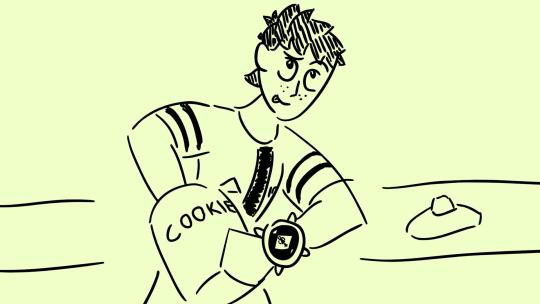
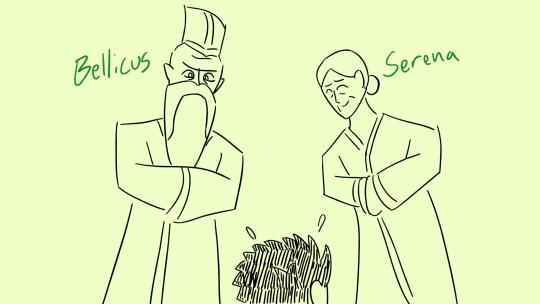
Alien X, the all-powerful alien form introduced in the sequel series, deserves to play an actual role in the story of Ben’s growth as a character, and the perfect time to introduce him is when Ben is still selfish, bratty 10-year old. Instead of being annoying, ineffective know-it-alls that make teenage Ben seem more righteous, Alien X’s additional personalities Bellicus & Serena should be safeguards put in place to keep Alien X’s powers from being abused, antagonists who aren’t villains but still oppose Ben because they (correctly) don’t want him to use Alien X for nefarious purposes.
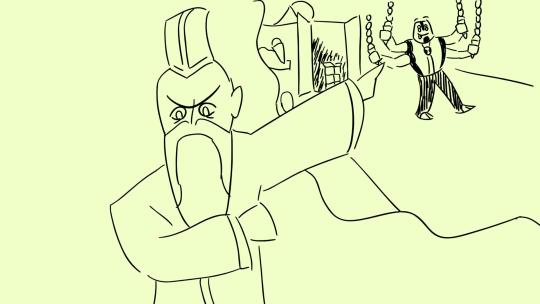
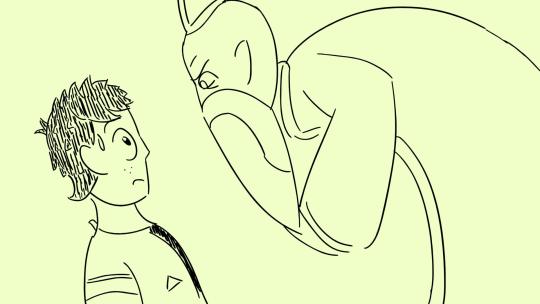
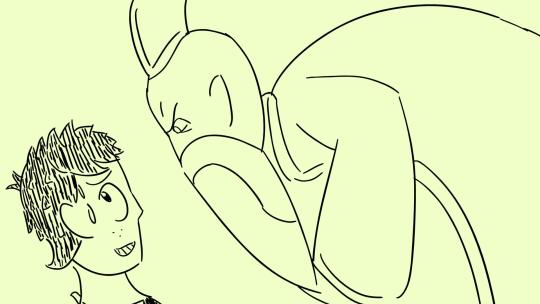
Bellicus knows about that time you stole ice cream, Ben.
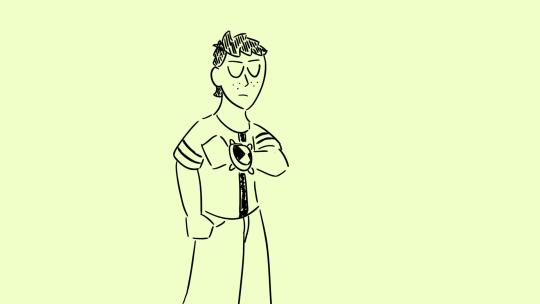
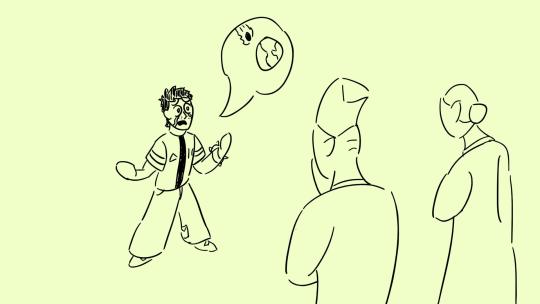
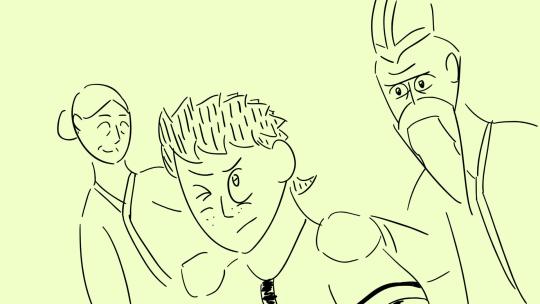
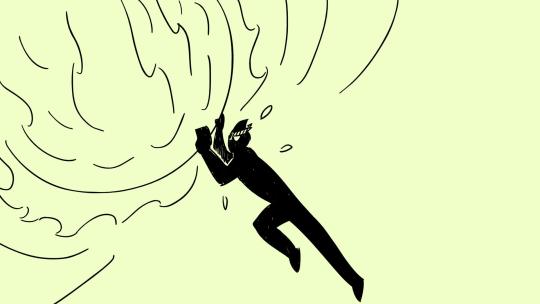
This would force Ben to prove his righteousness and compassion for others in order to use Alien X, giving him a reason to avoid using the transformation without placing blame on Bellicus & Serena. When a world-ending meteor hurtles towards Earth, Ben tries everything he can to stop it and turns to Alien X as a last resort, tears streaming down his face as he tries to convince Bellicus & Serena to help him save his home as well as everyone living on it. Moved by Ben’s emotional breakdown, they oblige him.
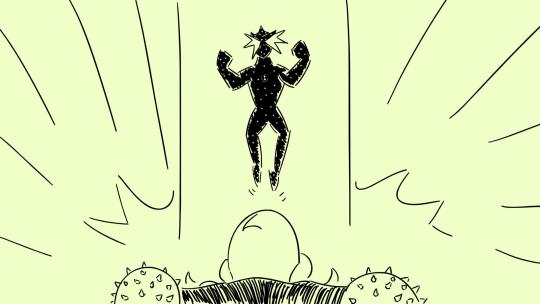
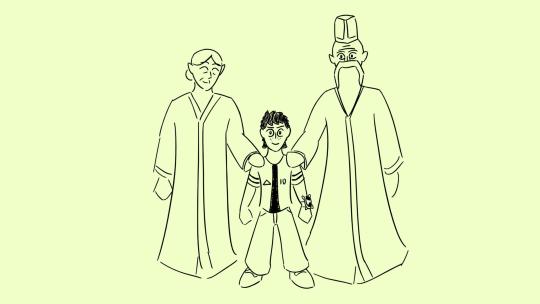
Alien X isn’t just an opportunity for Ben to demonstrate his growth as a character, it’s a opportunity to have multiple characters gain a better understanding of each other, where Ben learns that Bellicus & Serena aren’t some strict old fogeys and where they learn that Ben has the potential to become a noble, kind young man.
General miscellaneous ideas:
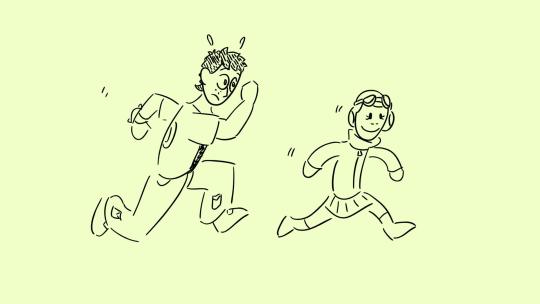
Ben babysits the Incursean Princess Attea and gets a taste of his own rambunctious medicine.
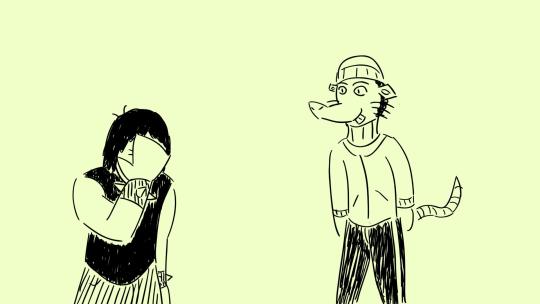
Kevin has to work with a lovable but dim-witted Argit voiced by Matt Jones (Badger from Breaking Bad, Wedge from Final Fantasy VII Remake)
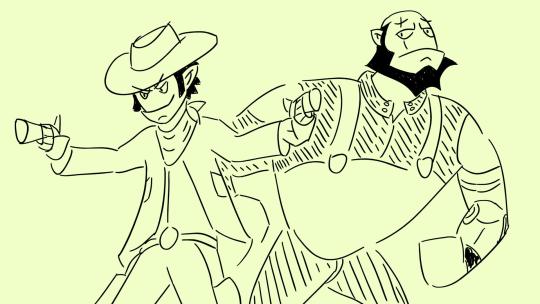
The Vreedle Brothers are less like rednecks and more like cowboy parodies (Rhomboid being an expy of Jet Black from Cowboy Bebop)
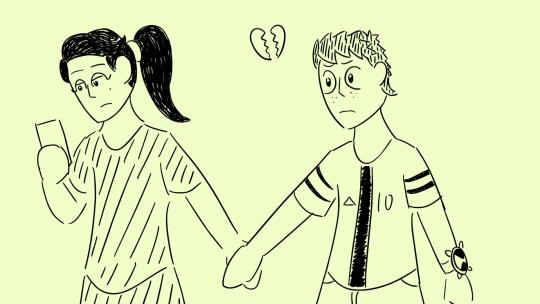
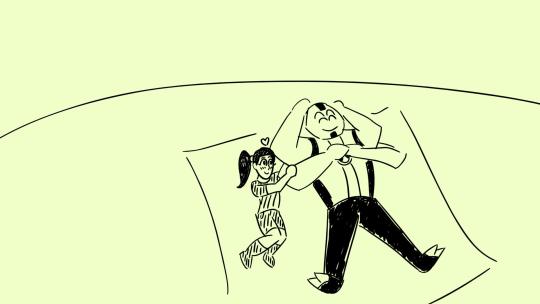
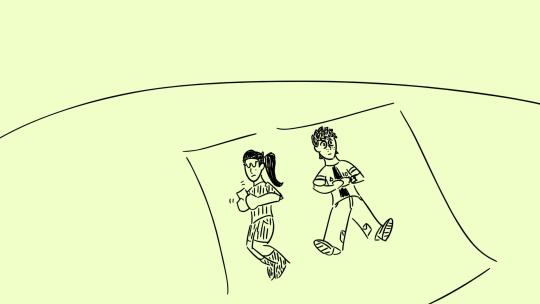
Since the original episode that featured Kai Green, Ben’s biggest crush, ended with her being in the wrong and Gwen telling her off, I want to see a plot where Kai and Ben are dating, but she’s only interested in Ben when he turns into an alien, where Ben needs to see that it’s not a healthy relationship and break up with Kai.
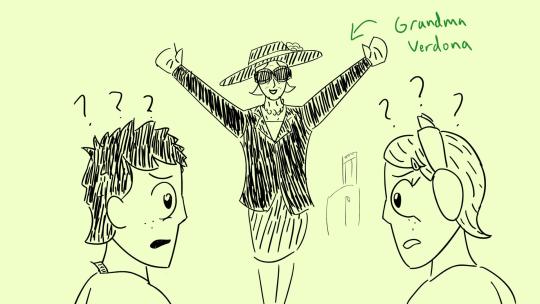
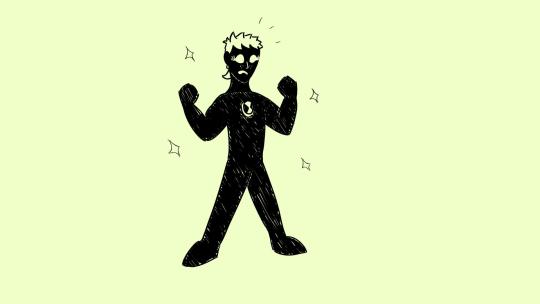
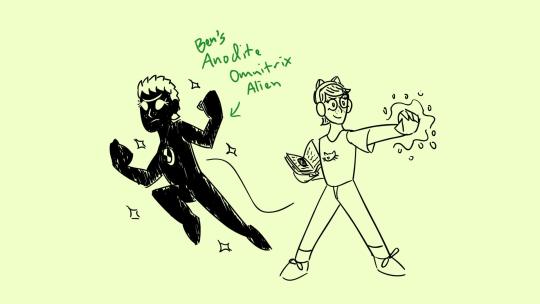
Grandma Verdona and the Anodites deserve to be a running plot point, but instead of Gwen turning into a flying purple space alien, let’s have Ben’s DNA unlock an Anodite alien form (voiced by Tara Strong) for him to turn into. Maybe even have an ep where Ben has to spend a day locked inside a feminine body where he learns that girls don’t have as many ‘cooties’ as he thinks.
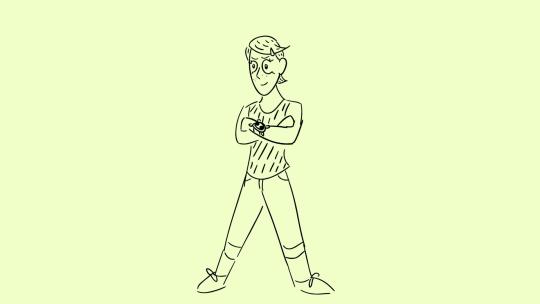
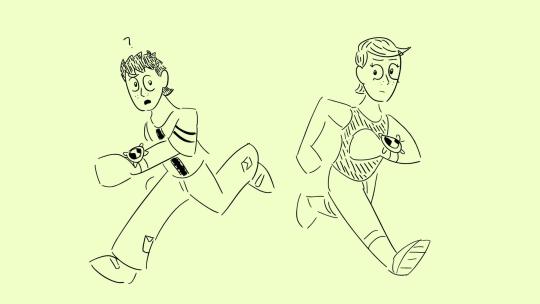
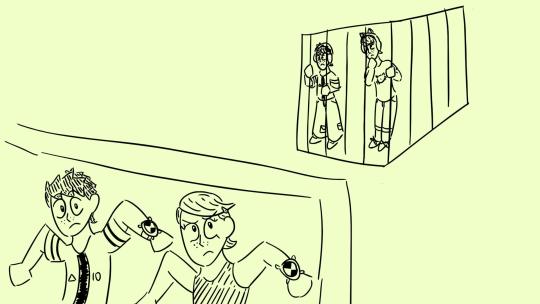
Where the original series had a Gwen 10 au episode, I propose a Ben 10 x Gwen 10 multiverse crossover. What happens when our Gwen gets captured and Ben has to work with somebody who can use the Omnitrix better than he can?
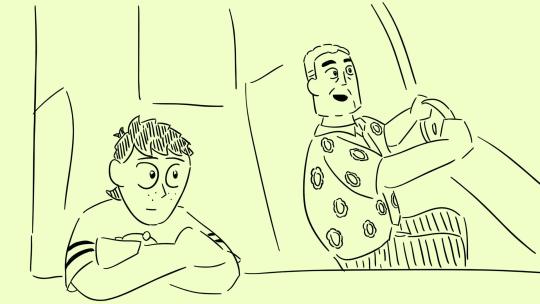
Grandpa give Ben advice.
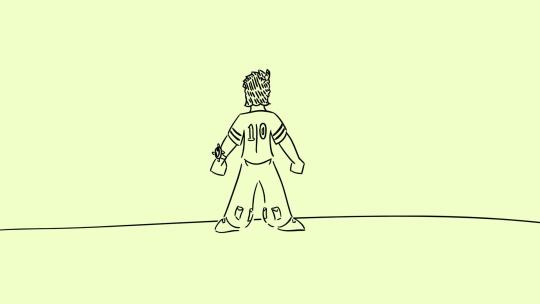
Ben stares out at the horizon.
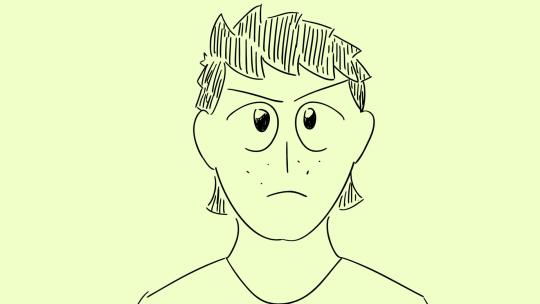
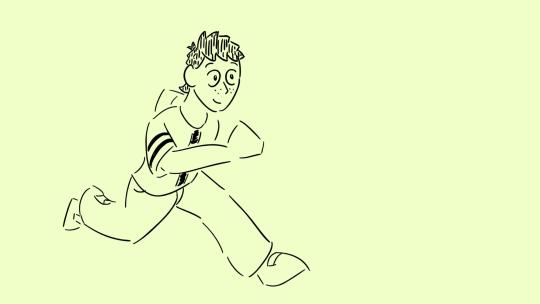
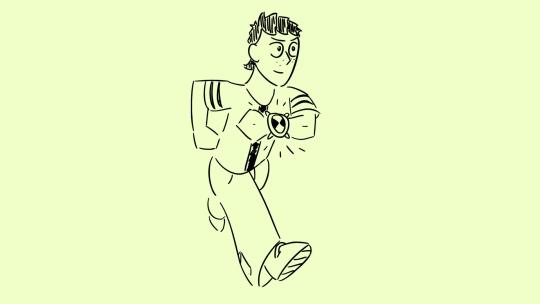
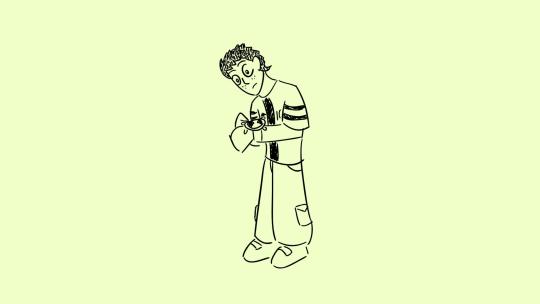
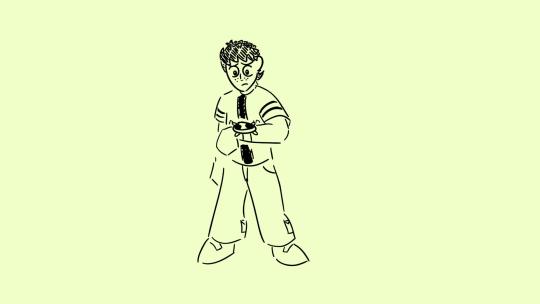
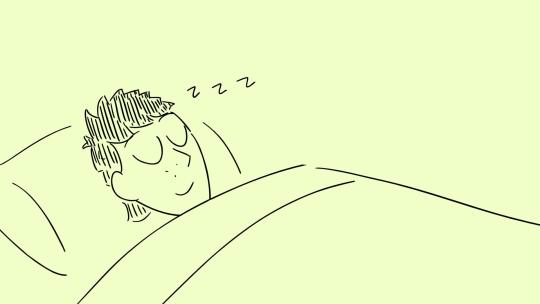
sleeby
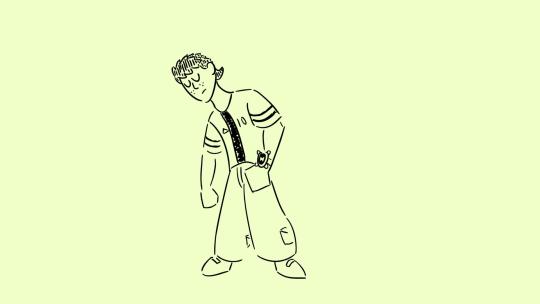
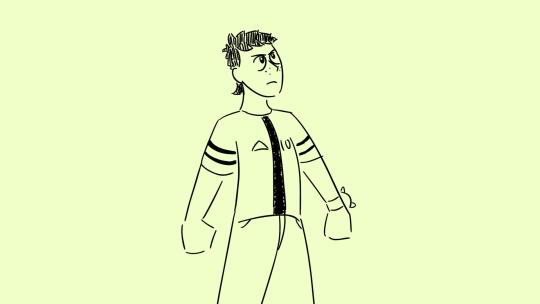
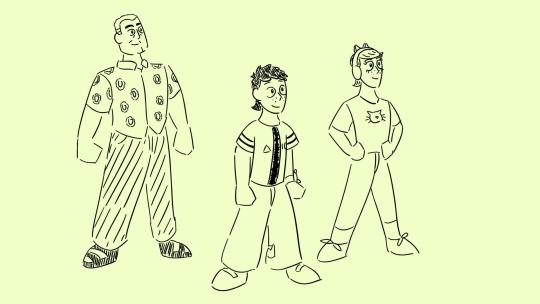
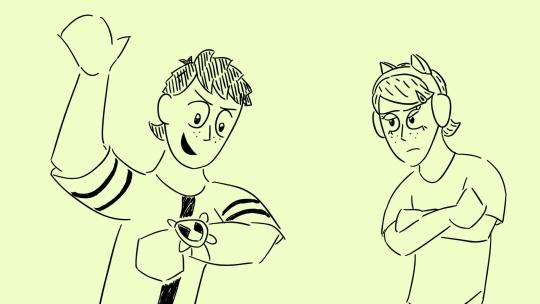
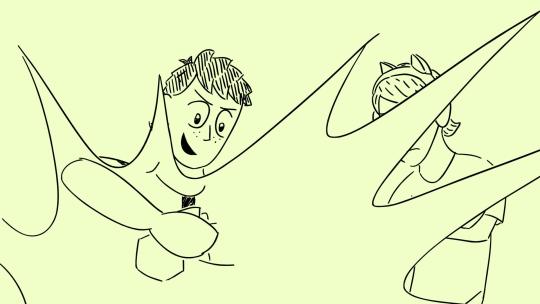
Miscellaneous images.
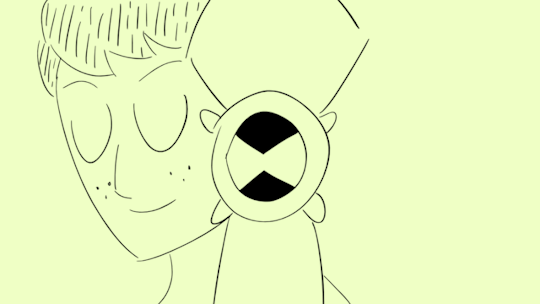
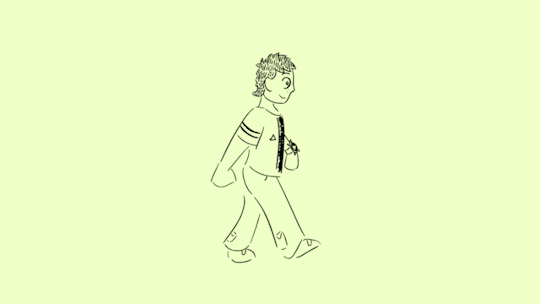
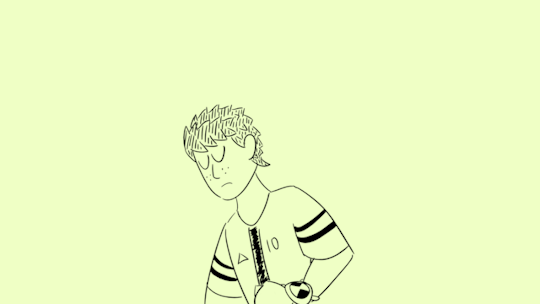
This is how I would write Ben 10.
66 notes
·
View notes
Text
Choosing a KinderCare Day Care
Find a day care that is state licensed to guarantee your child's health and safety. Ask friends and neighbors for referrals to nearby centers, and tour the ones recommended.
In the 1980s, Mendel and Grassgreen started diversifying the company by purchasing chains of photo studios, shoe stores and other retail operations. This caused a major headache for stockholders and lenders.
Safety First
Whether you choose babysitters kinder care, nannies, day care centers or preschools, child safety is a priority. A simple checklist can help you determine if the location is safe for your little one.
Young children rely on their caregivers to make sense of the world around them. They closely watch facial expressions and listen to the tone of voice to learn how they should feel, behave and understand a situation. That is why child care programs must meet strict health and safety standards. Sanitation requirements keep germs from spreading, healthy practice requirements support the physical activity of children and ensure they eat enough, and building safety requirements maintain fire safety codes and emergency plans.
Zippia provides in-depth information about KinderCare Education including salaries, political affiliations and employee data. This is based on self-reported information from employees or anonymous public records. This information is sourced and verified by Zippia to be true and accurate. But it may be incomplete or out of date.
Mini-Communities
When kids join a KinderCare classroom, they are entering a mini-community. They are welcomed by teachers who become a big part of their lives. These relationships will last a lifetime.
In addition, directors described how community involvement and the quality of local schools were critical to their programs’ success. They also emphasized the importance of the health of children and their families.
Many factors affect the financial strain of child care programs, including demand for their services (low demand can lead to underenrollment), size (larger centers may be able to take advantage of economies of scale), the availability of government funding beyond tuition and subsidies, and competition from other providers.
Programs can be part of the solution by leveraging their resources to support child and family needs. This includes community-based strategies to support family workforces, addressing the cost of quality for working parents, and innovative initiatives that enhance child learning and development. These efforts could improve the outcomes of ECE and strengthen community resilience.
Learning Through Play
Play is important for a child's brain development. Even simple games like peek-aboo and shaking a rattle can help toddlers learn about communication, motor skills and problem-solving.
In many early learning programs, children spend time in "play centers," such as a block corner, art center or dramatic play area. These areas are filled with materials that align with the lessons the teachers have already taught and a teacher's planned objectives for the children's explorations.
The most critical aspect of learning through play is that it is voluntary and childdirected. This is often referred to as free play. When children engage in free play, they may communicate with one another about the rules of the game or collaborate to create a rule system. This process-oriented play teaches collaboration, problemsolving, and creativity. It also demonstrates empathy, grit and social-emotional skills. Children deprived of opportunities to participate in this kind of play experience can have negative outcomes that stretch into adulthood.
Personalized Learning
In personalized learning kinder, each student gets a learning plan that’s tailored to their strengths, needs, skills, and interests. It is based on the old adage “Give a man a fish and you feed him for a day; teach him to fish and you feed him for a lifetime.”
Educators have long used personalized learning, or at least variations on it, such as differentiated instruction that recognizes that students come to classrooms with different backgrounds, abilities, and preferred learning modalities. Students work with teachers to set short-term and long-term goals, which empower them to take ownership of their education.
It also encourages them to speak up about what interests them, so they can advocate for themselves and be more engaged in the process. And when kids are engaged in their learning, they’re more likely to succeed. As a result, they’re more likely to grow up loving school. And that’s good for everyone. So what does personalized learning look like in kinder care?
0 notes
Text
Part of the process of rewriting the Nightmare Trilogy is, obviously, going back and reading the original stories to see what plot points I want to keep or modify, and lemme tell you, the 2007 version of A Treacherous Path was utterly batshit in the best way.
The absolute unfettered chaos of a 13-year-old who had just discovered fanfiction and was super excited to be writing and sharing stories with other fans, without any thought as to whether the narrative actually made any sense, is truly a sight to behold.
Some highlights of the original story:
For some reason Spud is the first person Rose tells about her family, and then he uses his hacking skills to access public records to find them? No idea why I thought that made sense.
I wanted Rose's twin to be a boy (I had a fascination with boy/girl twins because of Luke and Leia in Star Wars, lmao), so I came up with some half-assed explanation for how that could be possible and just went with it. His name was Adam. (I still wanted her twin to be a boy in the rewrite, but this time I just made him trans. Sheltered, religious, teenaged me would have never even thought of that as an option).
Adam is revealed to be a dragon in the chapter where Rose first meets her family. It's mentioned once, has no bearing whatsoever on the overall plot, and is then never brought up again.
The Huntsman finds out about Rose's betrayal because he's watching from a nearby rooftop while Jake and his friends play Frisbee in Central Park, and Jake dragons up to try and catch the Frisbee at one point.
Adam apparently has very strong twin telepathy, and feels pain when Rose takes a blast from a Huntsstaff. This seemed really cool when I wrote it, but I did not think through the horrifying implications, given that I was already planning the next story, which involved Rose being tortured by a rogue Huntsclan member.
The Huntsman decides to relocate to Florida to separate Rose from Jake. This leads to a moment where Rose sings the chorus of a song that I used to hear a lot on the local Christian radio station. The song as a whole is about something completely different, but in my defense, I did acknowledge that in the text.
When they return to New York, the Huntsman declares that the Huntsclan will no longer try to slay the American Dragon, and that no one is allowed to harm Rose either.
This is not at all a comprehensive list of the ridiculousness in that original fic, but you can see why this rewrite has taken me so long to make any progress on—the source material was just so hilariously contrived!
#american dragon: jake long#american dragon jake long#ad:jl#adjl#rose adjl#adjl rose#fanfiction#fanfic#the nightmare trilogy#archive of our own#ao3#i didn't realize it at the time...but having the huntsman experience a change of heart and become a good guy#was literally just me writing what i needed#an uncompromising authoritarian figure begins to see the world through the eyes of the teenager he's raised#and it leads to him developing empathy and becoming a kinder person#that was what i wanted from my dad#it was never going to happen...in their world or mine...but i needed to believe it was possible
11 notes
·
View notes
Text
ATLA AU Idea which is Basically “Azula Raises Katara for Several Years”
I’ve had this idea kicking around my head for months, and, since I have no intention of writing it, I figure I might as well post it. To be clear, the premise of this fanfic is “Azula, Katara, and Sokka get traumatized in ways they weren’t in canon, but the events that traumatize them potentially help lead to a better outcome in the long-term,” so be prepared for rough sailing.
This idea is very much inspired by all the “Katara gets kidnapped young and raised within the Fire Nation royal family” fanfics, which I think can be excellent if done with care. However, in a situation where Katara and Azula develop a relationship when they are young, the natural tendency is to make Katara the “motherly” or parental one, and I wanted to turn that on its head. I also wanted to explore some of the possible implications of Azula taking on adult sized responsibilities as a child and of the perverse ways that power differentials can influence things. I also wanted to explore some of the ways that Azula’s commitment to duty and responsibility can be a positive thing. Another ~2000 or so words under the cut.
The premise is that, shortly after Zuko gets banished, Katara gets captured by the Southern Raiders as the last Southern Water Tribe waterbender and brought back to Caldera and presented as a trophy to Ozai. Ozai’s first reaction is to have her executed, but fortunately Azula is also present in the throne room. For reasons which Azula doesn’t entirely understand herself but which definitely have something to do with her guilt over what happened to Zuko, Azula decides to intervene, despite the risks involved. However, not being Zuko, she manages to do this without provoking Ozai, through convincing him that Katara is more valuable alive as a trophy, a symbol, and a plaything than she is dead. Ozai doesn’t really care that much, so he pawns Katara off to Azula and basically forgets about her, accidentally using language that implies to Azula that Katara and taking care of Katara is now Azula’s responsibility. Azula is at an age where she’s started to take her responsibilities and duties with deadly seriousness.
Katara doesn’t know what to make of this all. She’s been severely traumatized by being kidnapped and torn from her family and culture and by having her life threatened by Ozai. She’s aware that Azula saved her life, but the language Azula used to in order to do so sounds warped and screwed up to Katara, who is unaware that Azula had to say what she said in order to manipulate Ozai. Katara noticed that Azula seemed a little nervous when she talked to Ozai, but Katara doesn’t initially know how risky and dangerous what Azula did was.
Again, Azula takes her responsibilities with deadly seriousness. So, when it becomes her responsibility to take care of Katara, Azula is determined to do the best possible job, even though she’s 11 and Katara is also 11. If there were any responsible adults present, they would intervene and talk to Azula about how awful an idea this is, but there aren’t any left. In any case, Katara’s waterbending abilities make it so she has to be kept under some kind of supervision, Azula is perceptive enough to worry that Katara might be mistreated if she got fostered out, and in any case Azula is convinced she can do a better job than any foster family.
Azula is a badly abused 11 year old who grew up indoctrinated in an absolutely toxic ideology. She’s never really seen good parenting in her life. The idea of her trying to parent should be terrifying. Yet she’s aware that Ursa didn’t do the best job with her, and since Katara isn’t a “monster” Azula sees no reason to replicate Ursa’s behavior. Azula believes the way that Ozai treats her is absolutely justified, even though she has some knowledge of its negative effects on her, but since Katara isn’t a princess who has immense duties to her nation and family, Azula sees no reason to treat her that way. In fact, Azula is aware of ignorance about parenting, and tries to read as much about parenting as she can. She also reads as much about the water tribes as she can in order to try to understand Katara better.
In terms of being a “parent,” Azula is overall a little standoffish, absent, and demanding. She doesn’t need to directly look after Katara’s physical care(she has servants for that), but she has to look after Katara’s emotional needs, her education, and her overall care. As a temporary measure, she arranges that Katara sleep on a cot in Azula’s room because she’s not sure where to put her, and this arrangement becomes permanent. This means Azula and Katara usually eat together, since Azula has taken most of her meals in her room, but Azula is very busy with her duties, training, and education, so they don’t spend much time together in a typical day. Azula has Katara officially declared a servant(but one who only reports to Azula) in order to regularize her status and allow Katara to draw a salary(most of which Azula holds in escrow for when Katara comes of age), but Azula only rarely asks Katara to do work; Katara had far more chores back in the Southern Water Tribe. On the other hand, Azula demands that Katara work hard in her education and on practicing her waterbending. Katara is too old to be sent to the Royal Fire Academy for Girls, but Azula obtains tutors for her, in addition to getting her whatever waterbending scrolls she can and trying to obtain the best possible bending coaches for Katara’s waterbending, sometimes even stepping in herself to try to coach Katara.
Azula is aware that Katara wants to return home, but she doesn’t think that Ozai would ever allow that, and, in any case, Azula is an imperialist who thinks Katara is better off being “civilized” in the Fire Nation than she would be back in her ignorant and “savage” home. A large portion of Katara’s education is intended to “civilize” her. Azula doesn’t have firm ideas of where adult Katara will fit into Fire Nation society but plays with the idea of marrying her into the nobility or of making her governor of the conquered Water Tribes. So overall, Azula does a shockingly good job as “parent” given she’s an abused 11 year child acting within the toxic norms of the Fire Nation, but that still means she does a bad job, and her relationship with Katara remains pretty toxic.
Ozai and the rest of the court have some awareness of what’s going on, but they honestly don’t care as long Azula continues to be an exemplary princess, fulfills her duties, and continues to exceed expectations. Some members of the court even find Azula’s personal commitment to “civilizing” a savage to be inspiring. However, the burden of taking care of Katara means that Azula is under even more pressure than she is in canon, with the good news being that Azula has something more of a support network than in canon. Katara provides some measure of support, and in this AU Azula never has the energy to really push Ukano’s political career forward, and so Mai never has to leave, so Ty Lee also stays put.
Katara, again, is severely traumatized by her experiences, and to a degree feels helpless. She knows that she can’t escape and go back home. She’s resentful of Azula and particularly of the efforts to cut Katara off from her culture, but at the same time Katara ends internalizing some Fire Nation culture. Yet after a while Katara gets a sense of how toxic the environment is at the Royal Court, and she soon(after overhearing a conversation between Mai and Ty Lee which was supposed to be confidential) learns what happened to Zuko and realizes how much Azula risked in order to protect Katara, and Katara can’t help but feel intense gratitude to Azula for it. Azula also gradually becomes more and more respectful of Water Tribe culture, and Katara deeply appreciates the emphasis Azula places on Katara mastering waterbending. Azula, Mai, and Ty Lee are also the only people in the Fire Nation who are ever consistently kind to Katara, and Katara ends up deeply bonding with each one of them, although the resulting relationships are not the healthiest. Katara eventually starts to develop a sense of how each one of them has been deeply victimized by Fire Nation culture. Azula goes to great lengths to hide her own struggles and pain from Katara, but Katara spends a lot of time with her and sometimes notices. Several years in, Katara notices some positive changes in Azula and begins to play with the idea that she can positively influence Azula so that Azula will be become a kinder and anti-imperialist Firelord.
Azula thinks Katara’s waterbending is the coolest thing ever(well, aside from firebending at least), a sentiment shared to a lesser degree by Mai and Ty Lee. Azula also thinks that learning to fight is vital, so she brings Katara along for her spars with Mai and Ty Lee. Katara makes rapid progress, particularly due to her access to many waterbending scrolls. As a result of this, and of Azula, Mai, and Ty Lee not separating, all four girls end up being significantly better combatants than they were in canon.
Mai and Ty Lee have complex reactions to Katara, but they eventually come to like and even love her. There is an element of resentment present because Katara takes up so much of the ever busy Azula’s time, but Azula forces her friends to spend time with Katara, and they end up bonding with her. Katara’s empathy and compassion works in her favor here, especially since she rapidly develops into one of the few people who sees and appreciates them for who they are. Mai and Ty Lee also find Katara’s waterbending to be an interesting and intriguing method of combat, soon come to respect Katara’s budding combat skills, and, as people deeply unhappy with their own places in society, they find Katara’s stories of life at the south pole to be interesting. Mai has issues with Katara being a little too “motherly,” but on the other hand appreciates that Katara pays attention to Mai’s actual desires and needs. Ty Lee sometimes finds Katara to be a little too similar to her for comfort, but also at the same time appreciates Katara’s caring side and the way she’s not reluctant to give her positive attention. Frequently Azula is too busy to join her friends, so Katara, Ty Lee, and Mai end up hanging out together. Freaks and outsiders stick together.
Azula, through her research into the Water Tribes, personal experience with Katara, and interest in Katara’s waterbending, begins to subtly yet strongly move in anti-imperialist directions and doubt Fire Nation ideology, but her transformation has scarcely begun by the time Book 1 begins. She does benefit from better relationships with her friends, though, and Katara gives her some emotional support. Meanwhile, to a lesser degree Mai and Ty Lee have had their own doubts develop about imperial ideology.
Azula tends to see her relationship with Katara mainly in terms of responsibility and duty, but she ultimately comes to fiercely love Katara.
Zuko and Iroh do their things, just like in canon. They receive vague reports about Katara’s presence in court, but they don’t understand the significance of them.
Sokka gets badly traumatized by losing his sister and believes her to be killed by the Fire Nation. Hakoda, Bato, and the water tribe warriors also still leave to fight the Fire Nation. Sokka is absolutely dedicated to seeking vengeance on the Fire Nation, and when he accidently defrosts Aang, he sees an opportunity.
Book 1 largely plays out the same, with minor changes. I think an interesting one is that Suki ends up joining a badly understrength Team Avatar and temporally leaving her warriors behind in order to aid Avatar Kyoshi’s reincarnation with the fulfillment of his destiny.
Book 2 opens with Azula being sent to capture Zuko and Iroh. Mai and Ty Lee tag along, in part with the hope of making sure Zuko is captured without being harmed, and Azula decides to bring Katara too rather than leave her alone in Caldera. However, the operation goes south, and Azula, Mai, Ty Lee, and Katara soon find themselves hunting the Avatar. Katara’s loyalties are about to be tested like never before…Meanwhile, Azula, Mai, and Ty Lee all have seeds of anti-imperialism growing within them, but what will it take for these seeds to blossom and give fruit? Meanwhile, Azula grapples with not only her canon trauma but also the trauma she experienced through her parentification.
205 notes
·
View notes
Text
For SNK Positivity Week Day 1 : Character Positivity Day ||
Zeke Jaeger : A Character Sketch
This is going to be a long rant in appreciation of Zeke's amazing character arc. He's not really my favorite character but the reason why I picked him for the character positivity day is because his character is often misunderstood and he gets a lot of unjustified hate. I did that too at one point; tbh I hated him with a passion but I'd grow out of it and even begin to feel for him eventually.
First off, let's run a background check on him. He was obviously neglected as a kid. His eyes speaks volumes here in this panel.

At the age of five, when all a kid looks for is love and care, his parents imposed the responsibility of the whole world on his shoulders. At an age when a child has a hard time spelling correctly, he was expected to infiltrate the government, fight for his brethren, become a double agent and what not. The psychological toll on a child who faces negligence and abuse at home is unimaginable. Paralleling that with stats of recent times, it's seen that bullies often come from abusive families. That's how psychology works. Once you've been victimized, you'll project that on others. That is exactly what happened with Zeke. The reason why he appeared so sadistic was because someone else put through hell before. The reason why he failed to love and empathize was because he himself was denied feelings of warmth and love. A child learns to emulate what he has learned from his parents. Can you really blame him for failing in the beginning?
But then, as the story of his life progressed, a more humane side of his character was developed with the coming of Xaver. Xaver was the first person to show Zeke parental affection. His contribution in shaping up Zeke's fundamental character is noteworthy. Even though he gave Zeke the love that he needed, his influence was not at all something appreciable, something better than before. If Grisha and Dina had wrongly used their son to meet their own selfish needs, Xaver was the shrewder one who showed affection on the surface only to permanently mould Zeke into becoming a pessimistic, merciless individual who had little to no respect for human lives. Zeke already bore the scars of his past; Xaver rather than inspiring him and guiding him decided to gaslight him into somehow believing that his whole life is a mistake and the same goes for all Eldians.
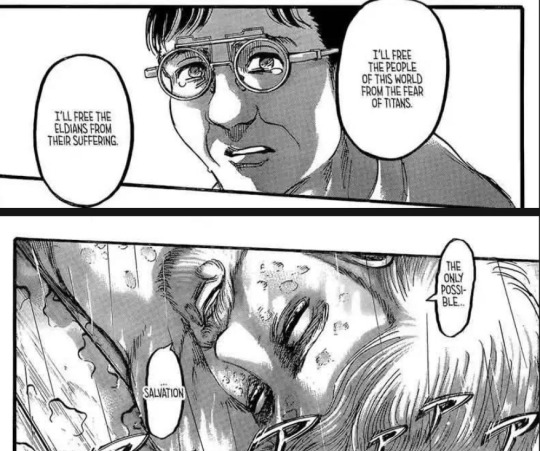
Imagine prevailing upon a teenager, whose personality is just developing, an idea that horrifying. If you sugarcoat the idea of genocide and instill that in a teenager, what do you even expect him to believe in? Drawing from our world, this was a tactic employed largely by Hitler in Germany. The only reason so many young people voluntarily took part in genocide was because they were spoon fed terrible ideas and convinced of false righteousness by their most trusted ones (often members of the family). The people we look up to for guidance are our parents and then comes our instructors. Zeke was unfortunate when it came to both. His instructor was the one who made murderous ideas seem okay to him. He's not at fault; he was only a teenager looking up at an older person for guidance and perspective.
So from there on we see how Zeke actually becomes a double agent serving in the Marleyan army. He has nothing to lose. He wrecks whole towns but deep inside he feels nothing. This lies in direct contrast with Eren who had an upbringing full of love and warmth. Remember how Eren couldn't accept even one soldier's death whatever be the cause? Again, both the character arcs follow the basic lines of human psychology. Environment, circumstances, influence -everything goes in the making of a person. However, this is true only until a certain point. You cannot forever be a product of your surroundings so once pubescence is reached, you're expected to make your own choices. Levi asking Eren to make a choice has a great significance in his life. It makes him responsible for himself. Similarlyen Zeke met Eren, he also made a choice - a choice to love someone. For the first time, he actually learned to love; for the first time he honestly wants someome to believe him and he feels like he understands Eren. Zeke realizes that he shares a common ground with someone and seeks solace in him. He's just a forlorn character seeking love and understanding.

He did love his grandparents before and also loved Xaver, of course, but that was more of being loved and then returning it. When it came to Eren, he made a choice of giving love to his sibling in spite of knowing his true intentions. His victim complex immediately assumed that Eren was also a victim of parental abuse and he chose to take care of him like a big brother. He never once doubted Eren. Even for someone as cold and sadistic as him, even for someone who had just murdered hundreds of SC members without a second thought, love existed; and with this a possibility of redemption; a hope of adopting a new perspective at life - one that is not inspired from hate, abuse, negligence or pessimism. From this point onwards, Zeke's character arc takes an interesting turn.
Ever since he met Eren and got to talk to him, we've seen him trying desperately to protect Eren. He's a product of negligence and he believes Xaver saved him. Therefore, he wants to save someone he loves too. He loves his brother and Eren is the only one who matters to him. He'd go to any extent to protect him. Hence the "Onii-chan is here" in the ending of Chapter 117.

He is adorable and his love for Eren is exemplary sibling love. It can be even compared to the likes of Itachi, Ace, Lelouch and Tanjirou - the famous big brothers in the animanga history. In 118, he knows Colt feels the same way but Xaver took away the feeling of empathy from a young, naive Zeke and so he goes on ahead with the Scream. Is it his fault ? No, not really. He was never accustomed with the meaning of life. He was a child growing up amidst war and devastation who looked up to a wretched cynical figure as his father. How can we expect someone to attach significance to life when all he was made to believe was that he is somehow at fault just for being born?

This directly contrasts how Eren was made to believe that he's special just because he was born in this world. The contrast between the brothers is never so eminent as in here, in this astonishingly different approach towards life.
There is a quote in Banana Fish that goes like: "You cannot be loved unless you love"
Ever since Zeke took it upon himself to save Eren, to shower him with love and affection, he showed us a more humane side of him ; a side I'm sure even he didn't believe he had in him before he came across his brother. He opened a portal to a kinder world when he learned to love. He was a sad, unfortunate creature unloving and unloved for most of his life. But now that he has so much love in his heart, even at the moment of betrayal, he gets to know how being loved feels like.
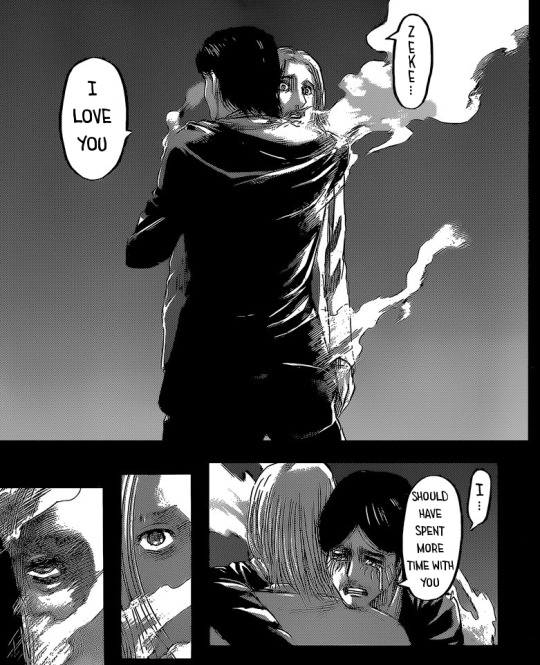
I cannot even begin to elaborate on the shock and the disillusionment that Zeke had to face when he learned the truth- that Eren was the one who manipulated Grisha and not the other way round. The good thing that came out of this was that Zeke learned that he was genuinely valued by his father and that he trusted him to stop Eren. However, Eren ruins it perfectly when he throws salt on Zeke's open wound.

Of course, years of negligence cannot be forgotten and/ or forgiven at the expense of one tiny moment and Zeke is hesitant to call Grisha 'dad' at times
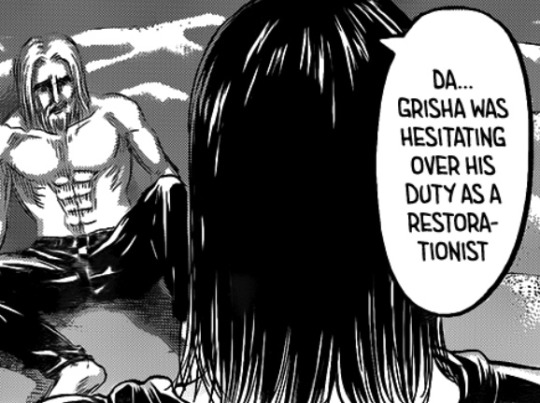
but at least he knows now that Grisha regrets his wrongs and that he loves him. Isayama had granted Zeke what he was long due, when Grisha confessed to him. Zeke's love for Eren is so pure, so selfless. Even when Eren says he had only used Zeke, even when he is rude and nasty with him, Zeke is convinced that it is all because of Grisha's brainwashing. He is so upset when he learns of Eren's betrayal in this panel.
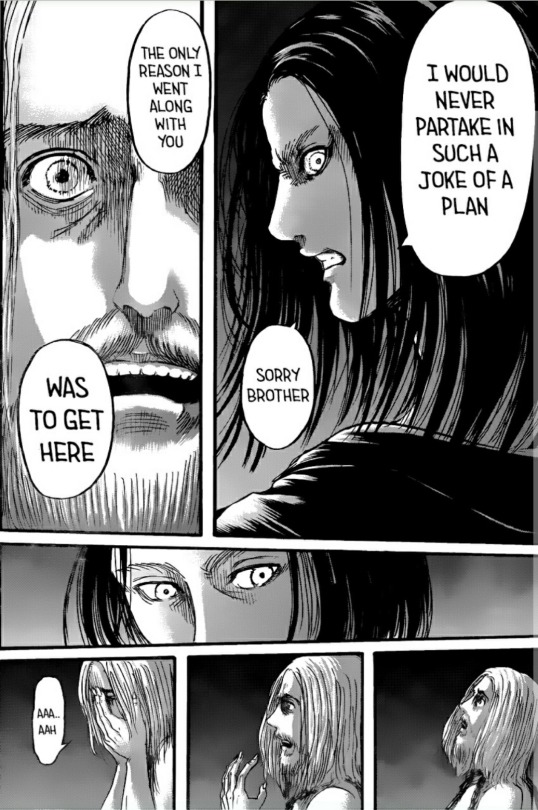
Of course, Zeke's love for Eren seems to be leading him to nowhere and this is sort of payback for all his crimes but at least, with Chapter 121, it can be said that Zeke Jaeger is no longer a tragic unloved character. He was loved by his father and he more than deserved to know this. His character arc is churned out wonderfully. He began as a villainous character but then Isayama gave us a glimpse of how tragic his story is; from there on Zeke's character evolved and his development reached its peak with his sincere and genuine love for Eren. Gradually his sad arc that made him to be a pitiful unloved creature is resolved with a confession of love from the most desirable person, not to forget that this new found love also came with Grisha's faith that Zeke would be able to stop Eren. He saw how in the impending future Zeke's plan will fail but even so he still has faith that he's going to stop Eren.
-×××-
Wow this became longer than I expected it to be. But I have been getting a lot of feelings for Zeke recently and I felt like I had to highlight him for the character positivity day because he is so misinterpreted in the fandom. I really hope people forgive him because basically nobody is evil by choice, it's the effect arising from cumulative traumatizing experiences as a child.
#snk#zeke jaeger#zeke yeager#snk positivity week 2019#snk meta#snk analysis#snk thoughts#attack on titan#shingeki no kyojin#snk positivity week
74 notes
·
View notes
Text
Orphans of the Storm: Attachment, Trauma and the Developmental Trajectories of Lelouch and Nunnally in Code Geass
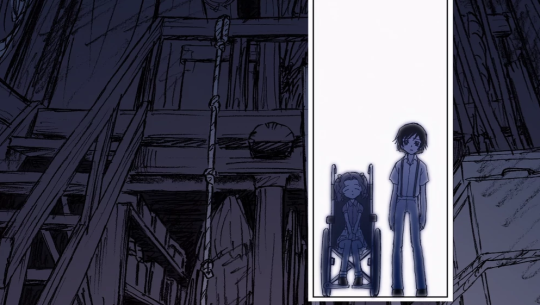
Alternatively titled, Matt Has a Lot of Thoughts About the Lamperouges. 7000+ words of thoughts, to be exact. Some of them might even be semi-intelligent. Admittedly, much of this was written from a hospital office while procrastinating writing patient journals for actual patients who are real humans and not fictional characters. Thank you to my supervisor for not supervising me very much.
I. Introduction
First, let us first briefly set the stage. The story of Code Geass is set in an alternate universe where the social-darwinist, imperialist superpower The Holy Britannian Empire is ruling large parts of the world. Lelouch and Nunnally vi Britannia are born into the royal family as children of 98th Emperor Charles zi Britannia and one of his consorts, Marianne. After their mother is assassinated in a terrorist attack at the Imperial Palace, an incident which leaves Nunnally blind and paralysed from the waist down, the two are sent to Japan as political hostages. The Britannian Empire then invades Japan shortly after they arrive, and they must seek refuge with the Ashfords, a wealthy family with ties to their mother Marianne. Presumed dead by the rest of the royal family, they take on the surname Lamperouge and begin to live in hiding in the now-colonised Japan, renamed Area 11.
These events constitute what is to become Lelouch’s raison d’être through the entire series - finding out who assassinated his mother, and creating a safer, kinder environment for his sister to grow up in. Nunnally is an extremely, and I cannot stress this enough, extremely important figure for Lelouch through the entire series (to the point where it’s kind of a joke in most spin-off material). He’s her main caregiver along with their maid Sayako, and protecting her is his primary goal - often at the expense of his own safety, his friends’ safety, and/or massive collateral damage. In this essay, I will analyse their relationship with their parents and each other through the lens of attachment theory, and discuss how these dynamics shape their developmental trajectories as they grow up. I will focus on two domains of development in particular: (1) emotional regulation and (2) identity. Based on this analysis, I’ll make the argument that Nunnally, despite being the one experiencing the most trauma, ended up more well-adjusted than Lelouch. Furthermore, although the series places much emphasis on how Lelouch is the one protecting Nunnally, he is actually more dependent on his sister than she is on him. I will also discuss how these central themes tie into Lelouch’s goals and political ideology.
II. Ode to My Family: The Fundamentals of Attachment Theory
Attachment theory is a psychological theory originating from the work of John Bowlby, concerning the bond between caregivers and their children. Put simply, Bowlby proposed that children are biologically predisposed to form deep, lasting bonds with their caregivers, and this bond has an important influence on subsequent development. In the attachment relationship, the caregiver functions as both a secure base from which to explore (for example, a child feeling safe when playing knowing a parent is nearby), and safe haven to turn to for emotional support (if they get scared or hurt when playing). Caregivers, on their end, facilitate secure attachment through moderate and appropriate stimulation of the child, warmth, mutually responsive interactions, and other behaviours that promote ‘connectedness’. Especially interesting is a trait called mind-mindedness, which can be described as a caregivers ability to conceptualise their child as an independent person, understand their mental/emotional state and respond appropriately. Important to note about attachment bonds is that they’re not “horizontal” - the caregiver and child aren’t on the same “level” as mutual attachment figures to each other, but the caregiver (as the older, wiser, and more experienced person who is able to provide care) will be a figure that the child can rely on.
A healthy attachment bond has a variety of important functions. It promotes the growth of self-reliance (which promotes independency), increases capacity for emotion regulation, promotes later social competence (such as empathy and mutual relationships), and is important for later identity development. This happens through the acquisition of so-called internal working models, that the child employs through their life. To simplify a bit, think of attachment as the mechanism by which caregivers, through their behaviour, teach children what to expect from the world around them, and what strategies to employ to best cope with it. At its core, it is about seeking security and safety - a form of healthy and adaptive dependence that provides a solid foundation and sense of security from which independence can grow
There are three main classifications of attachment bonds - secure, insecure and disorganised. Securely attached children will develop positive internal working models, where world is a fundamentally safe place, they are loved and worthy of that love. Interactions with the caregivers are frequent, mutual and predictable. For insecure attachment, there are two subcategories: avoidant and ambivalent. Insecure-ambivalent attachment is associated with unpredictable interaction styles, where some interactions between caregiver and child may be warm and mutually responsive, while others are more detached or unpredictable. This leads to frustration and confusion, and an ambivalent relationship. Insecure-avoidant attachment, on the other hand, is typically associated with a non-responsive and uninvolved form of care, or an absent caregiver. In this case, the child may feel rejected and like they cannot rely on anyone. Disorganised attachment simply means there is a lack of any organised form of attachment, but that’s not going to be relevant here so let’s ignore that one.
In summary:
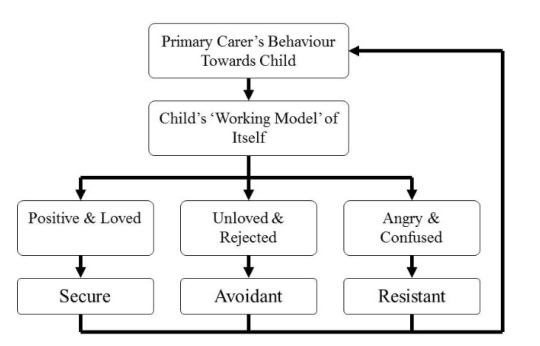
Did you really think you were getting through this one without at least ONE chart? (Note: ambivalent and resistant attachment is the same thing)
Also, important note before moving on from this bit: (1) Attachment is not the be-all end-all for positive/negative developmental outcomes, and (2) I’ll obviously be a bit quicker to assume correlation and draw conclusions than I would in real life, because in my mind applying this stuff to literary analysis vs. applying it to real people are two completely different things. Fiction consists of a series of deliberate choices of storytelling and elements you can easily pick apart and draw lines between (preferably with red string on a corkboard wall, while looking slightly manic), whereas people are, like, more complicated and stuff - nature and nurture and all that.
Now, with attachment theory in mind, let’s have a look at the evil Britannian disaster parents.
III. The Mother We Share: (In)Secure Attachment in the Imperial Palace
Before taking a deep dive into Lelouch and Nunnally’s relationship with one another, it’s essential to discuss their relationships with their parents. Unfortunately for me, there really isn’t much canon material regarding their lives prior to Marianne’s death and the subsequent exile in Japan. However, even with the limited information available, I think it’s fairly safe to say neither Charles nor Marianne deserve a parent-of-the-year award - a point cleverly foreshadowed by me when I referred to them as evil disasters just a few sentences ago.
As for Charles, I hardly need to even make a case that he probably wasn’t a great father. It’s never outright stated in the series, but I’m going to assume they had minimal or no contact with Charles. The main reason behind this is: why would they? He had 108 (!) consorts with whom he had many children, and was busy ruling the largest empire in the world. And as if that wasn’t enough, Lelouch and Nunnally weren’t even particularly high up in in the line of succession and would have been unlikely to ever rule in their lifetime (if it hadn’t been for, er, circumstances). Furthermore, because of his grand plan to fuse humanity into one collective unconscious through the Ragnarök Connection, none of this would matter to him anyway. Additionally, I think his lack of contact with his children is very apparent through the way Lelouch interacts with his father when confronting him about Marianne’s death, which I’ll get back to.
So, we can reasonably conclude Charles was an uninvolved/absent caregiver. However, things get a little more interesting with Marianne.
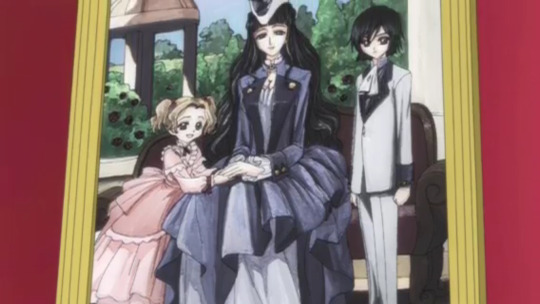
This isn’t relevant to the topic or anything, I just think it’s neat how they made Lelouch so visually similar to his mother. In addition to physical traits, Marianne’s dress here has a really similar structure to what would later become her sons rebellion outfit of choice. She even has a chess-piece-esque hat to go with. Then again, I suppose the alternative was making him visually similar to Charles, and that wouldn’t make for a lot of good fanservice now would it. Anyway, this image description is too long.
As mentioned, avenging his mother’s death is one of the most significant driving forces for Lelouch throughout the series. Her assassination impacted him greatly, both in and of itself and through the harm it caused Nunnally. Whenever she’s brought up, they both seem to get visibly downhearted, and there’s never any indication they remember her anything but fondly. In picture drama 22.25 (from their time as children in the Imperial Palace), the Britannian siblings find a commemorative plate that belongs to her in Euphie’s room. They start to bicker over it, because Nunnally wants to have it herself, while Lelouch thinks Euphie should keep it because it belongs to her. This all indicates that the royal children admired Marianne, and she was obviously an important figure to them both. Through this idolisation, as well as Lelouch’s obsession with what happened at the Imperial Palace, the narrative seems to want us to assume she was a good parent.
However, there are a few things that call into question how reliable of a narrator Lelouch actually is concerning Marianne. Towards the end of the series, it’s revealed that she is actually very much alive, and completely on board with Charles’ Ragnarök plan - making her one of the series’ main antagonists. During Lelouch’s final confrontation with his parents in C’s World in S2 E21, she is unable (or unwilling) to see how faking her death, traumatising her children, shipping them off to a country the Empire promptly invaded without ever making sure they’re still alive, and then trying to convince them to get on board with her human instrumentality plan is wrong. As her wiki bluntly states: “She only superficially loves her children and will not hesitate to kill them if they get in her way.” Taking this information about her character into account, I consider it more likely that the reason Lelouch and Nunnally idolised Marianne was either (1) because they based their impression largely on her reputation, rather than because she genuinely was a loving mother, or (2) she was a very good actor.

At least she provided some strategies to prepare her children for having to cope with the emotional trauma she was about to inflict on them.
How to make sense of their relationship with Marianne from an attachment perspective? I think this is largely up to interpretation due to lack of pre-series material. Lelouch and Nunnally both seem to like and look up to her, but that does not necessarily indicate secure attachment. I would argue they had an insecure relationship with Marianne, and that argument is based on two things. First, her personality traits and actions (rather than Lelouch and Nunnally’s accounts of her): she blatantly uses her children as pawns for her plan, and doesn’t care all that much that they were suffering as a result. Even though she does argue all her planning was well-intentioned, this act quickly fall apart when Lelouch challenges her. As C.C. tells her, “the only people you love are yourselves”. Calling this sort of behaviour “poor mind-mindedness” or “lack of parental warmth” is an understatement - I simply don’t see a scenario where Marianne would genuinely care.
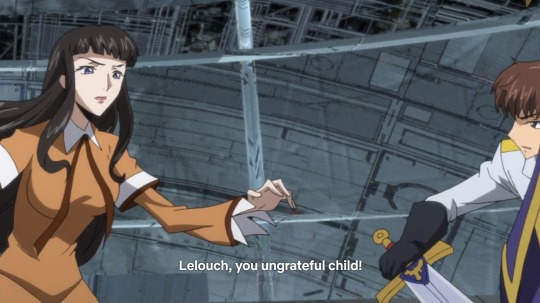
Secondly, I’d argue you can infer it from Lelouch’s patterns of behaviour as he grows older. Many of his actions, and the themes surrounding him as a character, could be seen as a manifestation of insecure attachment - his attitude towards Nunnally, attitude towards his friends in the student council, his emotionality, and the general theme of a fragmented identity, to mention some. But I’m getting ahead of myself. Point is, there is good reason to believe Lelouch or Nunnally had any form of secure attachment bond to either of their parents, and this has some implications for their development as the series goes on.
IV. Abandoned by the Empire: Trauma and Parentification
In addition to not having the best relationships with their parents to begin with, Lelouch and Nunnally were then burdened with more baggage after their mother’s death. In Nunnally’s case, her trauma from the incident was primarily physical (blindness and paralysation of her legs), due to her being literally in Marianne’s arms as she was shot. Lelouch was a witness, and escaped without physical injury. Afterwards, while his sister is still in hospital, he takes it upon himself to confront his father about what happened, and accuses him of having allowed, even facilitated, the assassination through purposefully neglecting security measures that day.
While Nunnally was by all means most harmed by the attack, it is here in the aftermath I’d argue Lelouch takes his “main blow” in the parental trauma department. When confronted, Charles gets angry and tells Lelouch that everything in his life has been handed to him by virtue of being a child of the royal family, and thus he’s never truly accomplished anything - he might as well be dead, and therefore has no right to doubt or disobey him. This is an especially cruel statement in the context of the social-darwinist Britannia, where the strength to survive by your own measures is seen as highly important, maybe even the only thing that truly is important. Lelouch then visibly flinches and falls back when Charles stands up, in a manner that seems outright terrified. Keep in mind, all this is happening in front of the Royal Court.
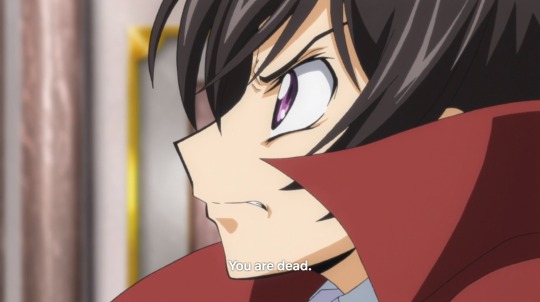
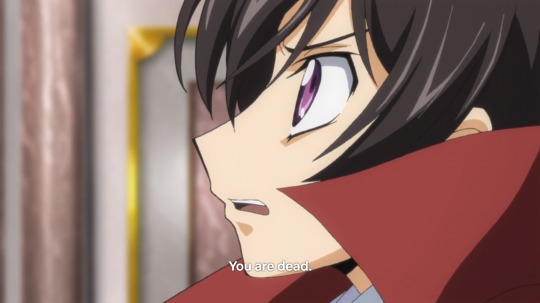
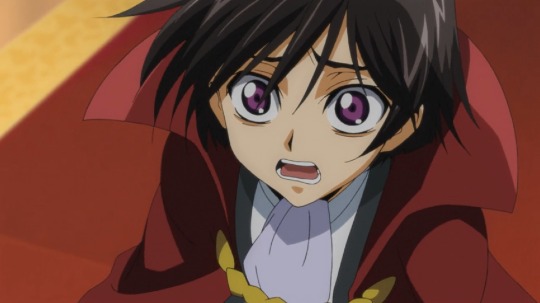
This scene in particular is the main reason I cannot imagine Lelouch or Nunnally having any kind of relationship with Charles prior to the incident, much less a secure and healthy one. You’d think the threshold for a young child to turn and publicly accuse his father of premeditated murder in front of the Britannian Royal Court would be astronomically high, especially if he actually liked and trusted him. Additionally, as I mentioned earlier, one of the most important functions of the caregiver is being a secure base in difficult and unsafe situations, which means that children typically tend to turn towards their parents during situations where they feel scared. Flinching away (so severely he even falls back, with a horrified expression on his face), rather than seeking closure, is highly indicative of insecure attachment/parental neglect.
As if all this wasn’t enough, Lelouch and Nunnally are then separated from all their siblings to be relocated to Japan as political hostages. Again, the pre-series material is pretty thin, but throughout the series there are indications that they had good relationships with some of their siblings. For example, Lelouch recalls playing chess with Schneizel, and possibly had some kind of relationship with Clovis judging by their conversation before Lelouch kills him. Both Lelouch and Nunnally also seem to have been very close with Euphie - in Stage 22.25, they’re playing in her room and don’t want to go to sleep because they’re having so much fun. Lelouch even refers to Euphie as the first girl he ever loved (let’s just... not unpack this one). Point is, not only do they get traumatised by and separated from their parents (whom they already had an insecure relationship with), but they’re also ripped away from their entire network of social support, except for each other.
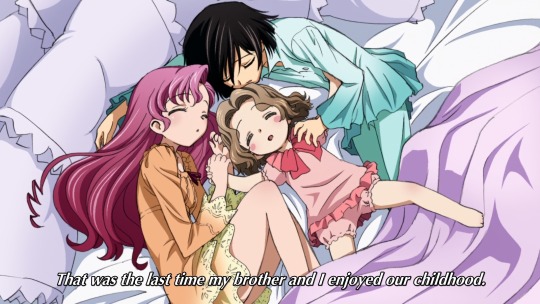
This image is so fucking sad. Fuck.
So, when Lelouch and Nunnally arrive in Japan, they’re on their own. And because he is older, and because of Nunnally’s disability, Lelouch ends up taking on most of the responsibility. He carries her up the stairs when they arrive at the shrine, washes their clothing, buys their food, and so on. In addition to these practical tasks, he also tries to comfort his sister emotionally and seems to also feel responsible for her well-being - for example, when discovering their lodgings were small and quite sad-looking, he tries to shield Nunnally from it by lying and telling her it looks like Euphie’s room. When Suzaku first meets Nunnally, Lelouch instantly runs into the room because he heard a noise, and freaks out at Suzaku because he thinks he’s going to harm her. For all intents and purposes, he steps into a caregiver role for his sister - an attachment figure, one might even say. This shift in their dynamic becomes very apparent when comparing their relationship in Japan and onwards, to the aforementioned bickering-over-a-plate incident in Euphie’s room, where they were fighting and playing like siblings.
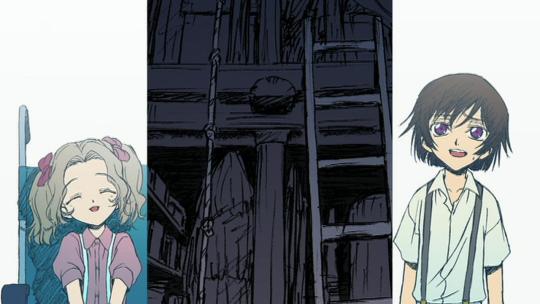
This phenomenon is sometimes called parentification, in which the absence of adult figures providing sufficient care causes one child to bear more responsibility than is normal for the age, and step into the role of “parent”. Parentification can be adaptive and healthy with concrete/practical tasks, in small periods of time and with plenty support, for example pre-teens babysitting their younger cousins. Suffice to say, Lelouch had none of those things. He is Nunnally’s sole contact, made worse by himself by being stubborn and not wanting to let anyone else in to help. Additionally, plenty of other risk factors for destructive parentification is present - the tasks are diffuse, all-consuming and way above the level appropriate for his age, he gets no sort of recognition, reward, or help, it lasts a long period of time (permanently), generational lines become somewhat blurred, and his own needs end up taking second priority to him. And, as you’ll remember from the attachment theory section, this kind of relationship is not horizontal in nature - Lelouch and Nunnally don’t provide each other mutual support of this nature, but rather Lelouch is the one providing a function for Nunnally.
In the beginning of this section, I mentioned that Nunnally’s trauma as a result of Marianne’s death was primarily physical. However, she evidently went through a great deal of psychological trauma as well. A novel detailing their childhoods in Japan states that Nunnally privately had a terrible time coping with the changes in her life and would throw tantrums when left to her own at Kururugi residence, destroying nearly anything she could get her hands on. However, unless she secretly throws tantrums whenever her brother is off screen, this doesn’t seem to be an issue during the span of the series. I’d argue this could be attributed to Lelouch functioning as a caregiver for her - she had someone there to help her, calm her down and provide external emotional regulation, which in turn helped her learn to better regulate her emotional states on her own. Lelouch provides safety and warmth, and, in doing so, becomes a buffer for his sister.
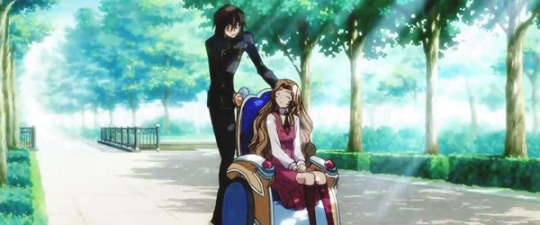
Lelouch, however, has no such buffers. Because of this, it’s easy to draw a line between his parental problems and trauma, and his subsequent maladjusted pattern behaviour when the siblings arrive in Japan. At the Kururugi residence, both him and Nunnally are offered both food and clothing, but he is insistent on providing everything himself - he washes all their clothes, and buys their food with coupons in town, despite being beat up by the other boys there for being Britannian. He’s distrustful towards everyone there (before later warming up to Suzaku) and hypersensitive for any possible threat to Nunnally’s safety. In my opinion, it’s evident Charles’ words had an impact on him. When Suzaku asks why he is so hellbent on refusing help, he responds with: “I’ll live by my own strength, and I won’t be dead any longer!” Through caregivers, children learn what to expect from the world and their own place in it - in Lelouch’s case, he clearly sees the world as an unsafe place with few people to truly trust, and considers himself only worth something if he is entirely independent. Although independence is often seen as a “mature” trait in children and therefore indicative of “good” development, healthy dependence and attachment in childhood is crucial for the facilitation of later healthy independence. And unlike Nunnally (who has him), he doesn’t have anyone to rely on and turn to for his security.
Diverting slightly from the topic at hand, I think this highlights the interesting narrative role of C.C. as the closest thing Lelouch has to a caregiver proxy. I am in no way trying to imply she is outright maternal towards him, but she’s of help and offers practical and sometimes emotional support - a role no other person in Lelouch’s life really fills. I already explained why Nunnally isn’t a possible candidate, and Suzaku, while an important figure in Lelouch’s life, has his own essay-worthy plate of parental problems to deal with. Additionally, their whole enemy situation doesn’t make him someone Lelouch can reliably turn to for comfort and support. C.C however, is older, wiser, more “stable”, and seems to know how to offer emotional support in a way that somewhat calms Lelouch down. In turn, he occasionally tries to reach out to her in difficult situations (or at least he gives into having breakdowns in front of her), which he doesn’t seem to do with anyone else. If only she’d intervened when he was a child instead of just standing there dramatically in the background. But alas.
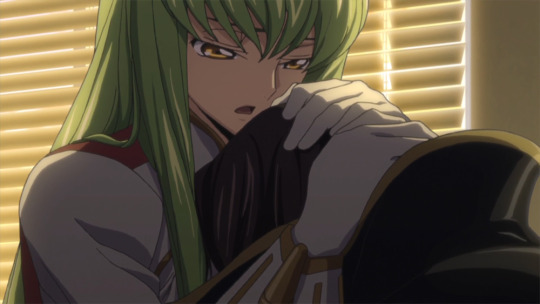
V. Some Things Just Stick in Your Mind: Differential Susceptibility
Earlier, I briefly mentioned Nunnally being the one most harmed by Marianne’s death. She was younger when it happened, more directly involved, and experienced a greater loss of function as a result which altered her lifestyle significantly. Based on this, I could easily argue that the incident would have far more damaging implications for her long-term psychological well-being compared to her older brother. I could, but I won’t, because it didn’t. Despite all these risk factors present in Nunnally’s case, their mother’s death seems to have made far more of a long-term impact on Lelouch. We’ve already discussed the most important reason why: Lelouch providing Nunnally with protective care associated with a secure parent, thus functioning as a buffer for her trauma. In this section, I’d like to discuss another important factor, interacting with attachment security: namely, differential susceptibility (also sometimes called responsiveness for care).
When we meet Lelouch in the beginning of Code Geass, he feels stuck and utterly powerless in his situation. He gambles on chess to pass time, but feels otherwise bored, restless and detached from his environment. When he receives the power of Geass from C.C., it gives him what he claims he wanted all along - a tool to take control of his life, get revenge on those who wronged him and actually do something. Thus, a plan to overthrow the Britannian Empire is formed and set into motion. The main targets seem to be the royal family as he struggles to systematically take down the empire and search for information - once he meets his brother Clovis, he shoots him (seemingly) without much hesitation. As time goes on, he sacrifices more and more time and energy to his obsessive goal, while his web of lies and various interpersonal becomes increasingly difficult to manage. There is a reason his character is often compared to the likes of Light Yagami (despite them having completely opposing ideologies, but that’s an essay topic for another day) - his arc follows the same downward spiral pattern, where one thing leads to another and suddenly you’re up to your ears in civilian casualties. It’s obvious Lelouch hasn’t accepted, gotten over, or forgiven his family in the slightest, and takes this anger out on those he perceives wronged him in search of an answer.
Meanwhile, Nunnally doesn’t exhibit anything close to this kind of grudge. She seems upset whenever it is brought up, but otherwise seems to have made peace with what happened and ready to forgive her family. One might argue this comes down to a difference of opportunity - Nunnally doesn’t exactly have the power of Geass, or even functioning eyes of the non-mind control variety, so it might be a bit more difficult to get certain things done. Such as killing off most of the Britannian royal family. However, even before Lelouch got the power of Geass, he expressed a wish to destroy Britannia for what they did to him and his sister. So, unless Nunnally has some secret desire to kill that was just never mentioned (in which case this whole essay is null and void, I suppose), Lelouch seems to be coping with his trauma in a much more maladaptive way than his sister, turning his sadness and feelings of rejection into anger and resentment, which ended up staying with him pretty much until the day he died.
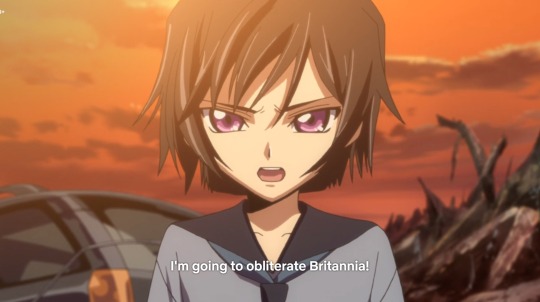
Reach your arm out and grab the stars or whatever that quote from LoGH is.
Based on this, I’d argue Lelouch is what one might call a flexible strategist. This doesn’t refer to his military tactics (although he seems pretty flexible with those as well) but simply means that, for better and for worse, he’s relatively sensitive to factors and people in his external environment. On one hand, he seems to flourish in environments where he gets support. During his childhood in the Imperial Palace, he seemed to mostly get along with and care about his siblings (as mentioned earlier). He was also by all accounts a very bright child - he did say he never managed to beat Schneizel at chess, but to give Lelouch some credit here, Schneizel at the time would have been an adult man in his early 20s, while Lelouch was, like, 7. The fact he even stood a chance is fairly impressive. I do not want to argue chess ability is the ultimate measurement of childhood functioning, but my point here is this: he seemed to be on a decent developmental path, both cognitively and socially, all things considered. On the other hand, he tends to react poorly whenever something goes wrong. I’ll talk about this in more depth in the emotional development section, but tl;dr: Lelouch is a very volatile character, who tends to have very high highs and low lows.
While Lelouch seems to be more “formable” by both positive and negative environmental influences, Nunnally is more of a so-called fixed strategist. She, like Lelouch, seemed to be in a decent place before the incident, had a period of acting out after her trauma (throwing tantrums etc.), but got “back on track” through Lelouch fairly quickly. She seems more forgiving of her family, for example when she is instantly supportive of Euphie’s special administrative zone (which Lelouch has a very ambivalent relationship with). Towards the endgame in S2, she even aligns herself with Schneizel. As her arc goes on, she shows herself more and more capable of functioning without Lelouch’s help, and make decisions of her own, based on her own opinions. Her outlook on the world seems to be much more down-to-earth and less black and white. Even when her own brother (the only person she’s been able to rely on for most of her life) geasses her and literally leaves her lying on the floor, she tries to reason with him. This is obviously just speculation, but I think had something similar happened to Lelouch he would have, psychologically speaking, completely lost it (in fact, he does lose it multiple times, which I’ll also get back to). Additionally, from the glimpse we see of Nunnally with Suzaku after Zero Requiem, it seems like she’s been able to cope relatively well with her brother’s death. In general, she seems to find her feet much easier than Lelouch and is more stable across situations.
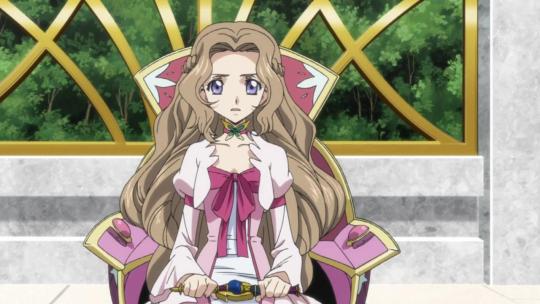
To summarise everything so far: I’d argue neither Charles nor Marianne were secure caregivers for Lelouch and Nunnally. This is implied not only by their traits and actions, but can be inferred from Lelouch’s maladaptive developmental path. The reason we see this pattern develop in Lelouch but not Nunnally is that he, through parentification, functioned as a buffer for her. Furthermore, this difference in trajectories is amplified by their different underlying susceptibilities - Lelouch more sensitive/formable by negative events and loss in general, while Nunnally is more resilient. From this point on I’ll focus mainly on Lelouch, and discuss how this magnificent cocktail of risk factors explain his developmental outcomes as an older teenager - in particular, how it shines through when it comes to his emotionality, identity, and goals/motivations.
VI. Thunder in Our Hearts: Emotional Development and Interpersonal Relationships
Lelouch frequently throughout the series, for lack of a better term, loses his absolute shit. For example, in the scene where he plays chess with Mao in S1 E16, he screams and dramatically falls backwards when the last piece is thrown onto the scale. He’s completely devoid of expression, and is well and truly out of it until Suzaku arrives. He ends up in a similar state of mind when he thinks Nunnally is killed in S2, where it seems like he’s completely detached from his surroundings - just repeating that he wants to speak with her. In addition to these dissociative-esque states in response to extreme stress, he has lesser breakdown and outbursts as well, such as: after Shirley’s father dies, after the incident with Euphie, when he’s flipping out at Rolo upon seeing his phone locket, etc. Additionally, he’s been shown to take stress and anger out on other people in the (kinda hilarious) scene where he goes to an abandoned street to use his Geass on random people, making them dance as he stands there being angsty. These bursts of emotion don’t exclusively concern negative situations either, as evidenced by his multiple periods of manic laughter and monologues during battle.
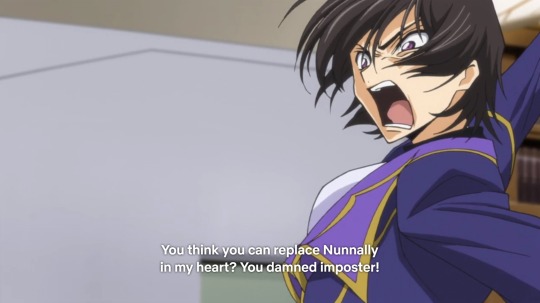
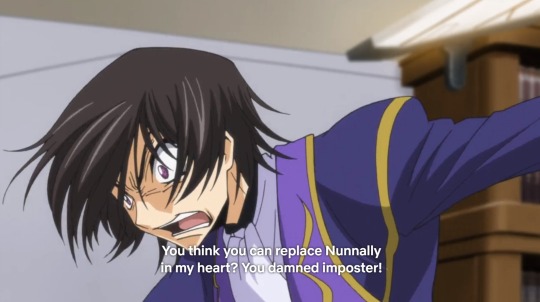
I once read this Geass analysis claiming Lelouch is an unemotional character. As evidenced by these screenshots, that was a correct take and not inaccurate at all. Emotions? Where?
In addition to being fairly emotional, Lelouch’s character is also very centered around the people in his life. His mother and sister are the primary motivation through the series. He uses Nunnally’s well-being to justify his actions. He let’s C.C. comfort him. He cares greatly about Shirley, and is devastated at her father’s death (though one can only assume he feels a bit better after punching a wall in the shower), to the point where he erases her memory to spare her the suffering he’s bringing by getting her involved. He obviously deeply cares about Suzaku (again - essay for another day), and orders him to keep on living no matter what, despite him being the number one obstacle for Zero’s plans. If he expresses this affection in a reasonable way is another question entirely - his main way of expressing his love for Nunnally seems to be killing thousands of people for her sake, Shirley by erasing her memory, and Suzaku by forcing him to live on at any cost, which is the exact opposite of what he wanted.
He also has a recurring pattern of requiring a lot of external emotional regulation through other people. Nunnally is the most obvious example of this (obviously) - whenever something goes slightly wrong, he usually defaults to screaming about her, and becomes absolutely devastated whenever she’s unsafe. If Lelouch functions as her buffer, I’d say she’s her crutch. He heavily leans on her for justification and a purpose in life. But, these maladaptive ways of leaning on people also occurs with other characters, such as in the scene with Kallen in the warehouse where he’s about to inject himself with refrain. Kallen takes the needle from him and throws it on the ground, and he reacts by walking towards her asking her to console him - saying “there are things a woman can do for that, right?”. Kallen promptly (rightfully) slaps him, and he seems to regain his senses.
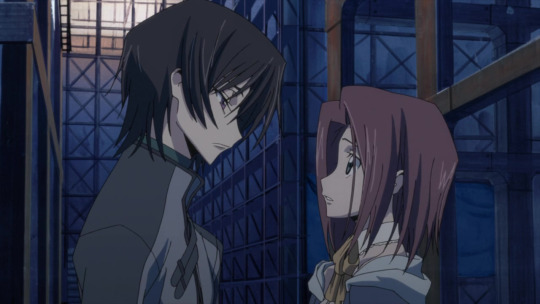
The most frequently repressed scene by all Lelouch fans.
In summary, I’d argue Lelouch is the complete opposite of an unemotional or uncaring character. He often seems to struggle with controlling his (plethora of) emotions in healthy ways, and copes with them either through completely shutting things out, having frequent breakdowns, lashing out on others, or using people as emotional crutches. He’s also very centered around other people, but tends to express it in less-than-appropriate ways, and goes on about things in an almost childish way, at times. This, I think, is indicative of his insecure attachment and lack of sensitive caregivers. In contrast to Nunnally, who had him, he didn’t have anyone to provide safety and externally regulate his emotions, meaning he was never able to internalise such strategies. Thus, there is a pattern of unhealthy (lack of) regulation of emotional states, leading to these stark contrasts between high and low points, and the quite bad ways he deals with them. Years of stress, repressed restlessness and unhealthy coping mechanisms for trauma certainly didn’t help either. Put simply - he’s a bit emotionally immature, and this is a significant aspect of his character.
VII. Reflektor: Identity and Projection
One of the most prevalent motifs in Lelouch’s arc, save for the chess symbolism, is the theme of masks and a fragmented identity. Throughout the series, he uses different identities to fill different roles in his life: Lelouch vi Britannia the prince, Lelouch Lamperouge the student, Zero the terrorist/freedom fighter and eventually Lelouch vi Britannia again, the tyrannical 99th Emperor of the Holy Britannian Empire. This switch is the most obvious display of the fragmented identity theme, as he is quite literally changing his name and masquerading as different people. With his Zero persona he even puts on a literal mask to conceal his face, but he also uses subtler, figurative masks for his other personas in order to achieve various goals. Additionally, there are also subtler role shifts at play within these identities: Lelouch Lamperouge exists as Nunnally’s caregiver, a student council member, Suzaku’s childhood friend, etc. (as with all people, fictional or not).
It is here his main ideological conflict with his parents arises. Charles and Marianne wants, through their Ragnarök plan, to abolish all “masks” and fuse mankind into one collective unconscious. Their reasoning is that if everyone were honest and there were no separation between people, the world would be a better place. Lelouch, however, finds the concept of identity masks useful and even defines himself by them. This is clearly shaped by his own experience - in order to survive in Area 11 and protect his sister, he had to change his name and lie. In order to gain real power and influence to overthrow Britannia, he had to change his name and lie. This modus operandi goes straight to the heart of his identity, because it is the reason he is able to exert his will over the world in any meaningful way - which, as we discussed earlier, is the reason he is “not dead any longer”. His core idea is that those who are privileged enough to be able to tell the truth about themselves, have no right to deny others the right to lie for their own survival or to achieve their goals.

Carl Jung arguably had a much more significant impact on anime than he did psychology. Actually, this isn’t even arguable.
Another, subtler way the series conveys the theme of fractured identity is Lelouch’s projection of desires and wishes onto others. This is shown quite literally through how the Geass gives him the power to command anyone to do anything. But not only does he impose his will onto others through verbal command, he also projects his more abstract goals and desires into the people in his life. Again, Nunnally is the most obvious example of this: Everything he does, he claims is for the sake of Nunnally. It’s interesting he never outright says that he wanted to do any of this for any personal reason - it’s all about a kinder world for Nunnally, Nunnally’s smile, and how their parents abandoned them. In the final confrontation with Charles and Marianne, Suzaku asks him if he used Nunnally as an excuse to justify his actions. Lelouch confirms this, and then says he fought to protect everything he wanted to protect. Still, he never mentions he feels rejected, or that he would want to grow older in a kinder world, even though it’s obviously more his own wish than hers (as Nunnally mentions during Zero Requiem, she would have been happy just being with her brother). In a way, he considers himself two steps removed from his desires - only working against Britannia on the basis of what he imagines the people in his life would want him to do.
Lelouch also has a tendency to view his own identity(-ies) through abstract symbols, rather than as a concrete human being with a backstory, grudges and motivations. In exile he expresses frustration at being a pawn of Britannia, as Zero he functions as a faceless symbol of Japanese liberation and a rebellion against the establishment, and as Emperor he aims to become a symbol of people’s hatred towards their oppressors. Even the orchestration of his life’s ending is primarily a symbolic act to him; with the world’s hatred focused on a tyrannical Emperor, the world can be peaceful when that symbol disappears. Lelouch seems very aware of this himself: that he is past the point of no return, and destined to become someone who will bear the burden of sacrificing his own identity, morals and character to play a part. He, in a way, seems more comfortable in this realm of abstraction - in being more of a symbol. However, if we try to strip away his rather grand narrative for a second, we’re left with a person committing suicide at 19 because he thinks the world will be a better place for it.
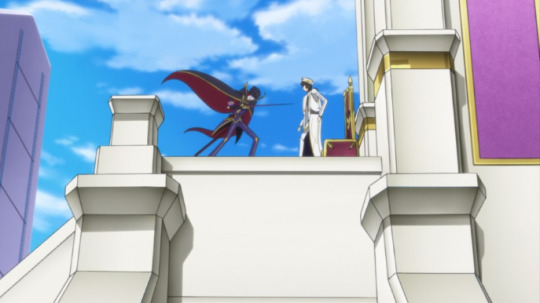
Black king captures e1, checkmate.
VIII. Pity the Child: Politics and Spite
Lastly, I want to make the argument that the parental abandonment Lelouch and Nunnally experienced, and the subsequent cascade of issues is the most important aspect of the series. Even more so than the central ideological conflict of working against versus within systems of oppression. As I’ve already touched on a fair bit, I think Lelouch’s circumstances growing up and the experiences arising from that was the very foundation for his later ideology and hatred for Britannia, rather than his ideology in and of itself being the reason he hates his parents and the system they represent. This is best represented by the climax of the scene with Charles and Marianne in C’s world, where Lelouch speaks not of systems of power, racism, oppression, politics, etc. - he speaks of abandonment and hurt.
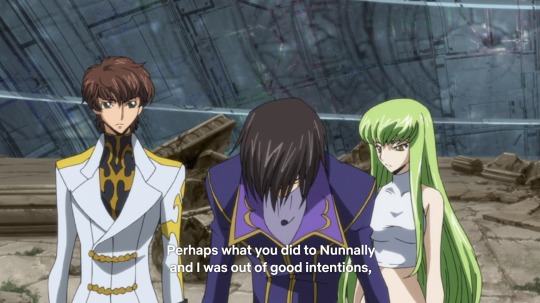
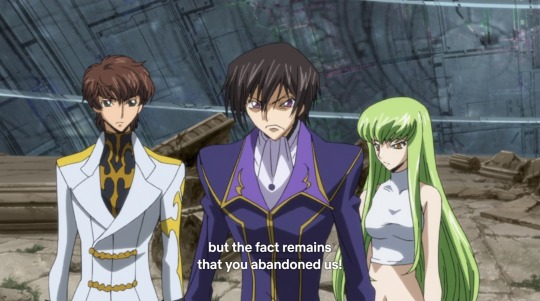
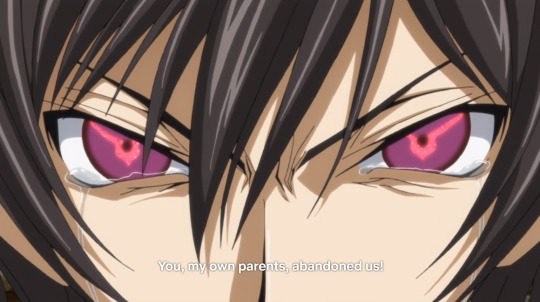
In my opinion, there’s reason to question whether he would have gone to the same lengths to destroy Britannia if he’d not been exiled from the system himself. In one of the picture dramas from his summer in Japan as a child, he lectures Suzaku on Britannian and Japanese foreign trade policy, making the argument they’re both unethical. This indicates he already knew of and disagreed with the actions of Britannia, but it’s only after he’s exiled and war is declared on Japan he begins talking about enacting revenge. Additionally, he has some truly magnificent displays of hypocrisy throughout the series that (in my unpopular (?) opinion) puts Suzaku to shame. Even the very act of him using Geass is contradictory to his fundamental belief: that opposing a well-intentioned act upon others is no different from an evil act. During their confrontation, he is very concerned with expressing this ideology to his parents, before promptly turning around and making his brother a geassed slave forever, two episodes later.
Not to completely undermine his ideological streak; I do genuinely believe he is anti-Britannia, and I do genuinely believe he values personal freedom highly. However, based on everything discussed so far, I’d argue he would perhaps not have cared as much, or at least been more open to a more Suzaku-esque approach, had he not had deep personal trauma connected to the whole situation as well. So, his main motivation isn’t to “bash the fash”, as it were, but rather bash these few specific fash who traumatised him and his sister before shipping them off to a foreign country they then immediately declared war on. Revenge, spite, and pure, childish anger towards a family that wronged him is a much more useful lens through which to view the series, rather than an ideological conflict per se.
IX. The Conclusion Bit, Finally
To summarise this entirely too long essay, Lelouch and Nunnally both suffered from insecure attachment and later trauma and parental abandonment. Nunnally’s main protective factor/buffer for this trauma was Lelouch, which gets her “back on track” towards becoming an emotionally stable and independent girl. Her brother, however, doesn’t have anyone to fill this role, and this cascades into dysfunctional behaviour and strategies across different domains: his trust issues as a child, obsession with revenge, immature emotionality, poor handling of stress, projecting onto others, and a fragmented concept of his own identity. Lastly, I think these personal issues constitute the crux of his motivation throughout the series - Lelouch’s arc is about trauma, parental neglect and spite more than it ever was about politics.
#code geass#lelouch vi britannia#lelouch lamperouge#nunnally vi britannia#@ everyone who's ever wanted to read a Long essay on code geass and developmental psychology: you're welcome#I hope some of it is understandable or even interesting#my essays#.........that's a VERY optimistic tag but I feel like I have to tag it with Something#analysis
219 notes
·
View notes
Text
minawakitten replied to your post “Sorry for Undertale-ing on main but I’e been listening to songs that...”
yall gonna have to go into more detail about that because that gremlin child did not give me many good impressions [ especially when asriel goes into detail about the time they were as one being ]
Sorry I was really focused on drawing this:
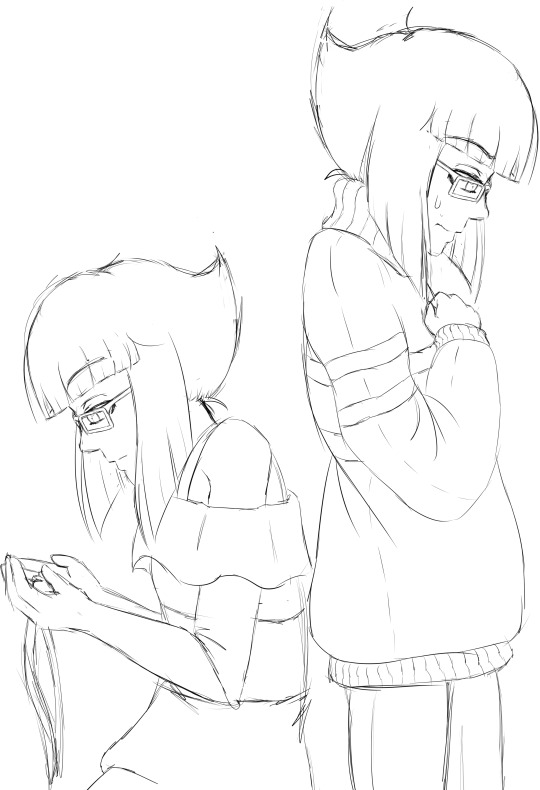
Now that I got some of my feels out of my system I’ll tell you about Chara, or at least, the story I had for her.
Spoilers under the cut, because I still want to write this damn story one day gdi
Okay so Yeah I get why you’d think Chara is an absolute gremlin. TBH I thought the same when I started developing the original AU where this specific interpretation of Chara comes from, but the story developed beyond that and she became the protagonist.
But first: Have you ever heard of the Narrator Chara Theory?
I’m not sure how popular the theory is now, but it was kind of popular when I was in the undertale fandom. The idea is simple: Chara is the narrator. This explains some strange things, like why the narrator is addressed as “Chara” by Flowey when you open the game after a pacifist run to RESET it, and other bits and bobs. A lot of people use the flavor text like “No Chocolate” or “Where are the Knives” from the genocide route to point out that this is Chara and Chara is evil--except that flavor text is narration. You can’t just say some narration is Chara while others aren’t. It’s all or nothing, and there’s hints that depending on how the player plays the game determines what kind of personality Chara gets at the end. When you do a genocide run, Chara wants to destroy the world because Chara saw Frisk kill all of monster kind and decided that the whole world should be erased. If you think about it, they are said to hate humans--and why wouldn’t they hate humans more after seeing Frisk massacre the entire monster race? What motivation would Chara have to want this world to live if the species they grew fond of was obliterated?
It’s also implied that the player’s/Frisk’s actions makes Chara “Good” or “Evil” depending on what you do. Notice how the narration changes in the different routes? That implies that the narrator themselves is a character being affected by Frisk’s actions. Chara may or may not also feel bitterness at monster kind in the afterlife, because of the declaration of war Asgore had, which is why Chara may have been enthusiastic about the genocide run as well as the pacifist run.
Once you consider Chara to be the narrator Chara’s character expands beyond what Asriel gives you and the hints you get about them in the game. Asriel’s claim that they weren’t a good person almost becomes kind of cruel, and before you say Asriel is a sweet baby child that can do no harm, let’s not forget that Asriel is also Flowey and Flowey is just Asriel’s personality without much empathy/sympathy/unable to feel emotions.
I’d like to point out that Chara... literally gave their life to try to save monster kind. They had no point of reference to what would happen to them after they died and Asriel took their soul, there was no real way for them to have known they weren’t going to just cease existing afterwards. Them taking their body up to the surface? That was probably Chara wanting to give closure to any family, or in a more bitter tone, bring their body up to the surface to show what the humans what they had done--killed them.
It’s implied heavily that Chara was abused, which is where they get their hatred of humanity from. Them wanting to kill all the humans on the surface, while still morally wrong, was probably a sort of revenge for what they did to them. They were hurt and abused, and they have an intense hatred for humanity that they probably wanted to wipe most of humanity out because of their past abuse. That is especially amplified with how it was monster kind that gave them a good home, food, love and care where as humanity remained ugly and horrid. There were no positive human influences on Chara, and seeing how such a kind and loving race was trapped under ground probably fueled the fire even more.
Either way, they did sacrifice themselves to try to free human kind, regardless of interpretations and speculation.
Now in comes my specific girl here.
My interpretation of Chara didn’t just have the above conflicts weighing on her mind, but also pressure accidentally put onto her and Asriel. Asgore, Toriel, and all of monster kind calling them their “hope” and... you know? That’s actually a lot of pressure to put on two kids, especially when one of them was abused like Chara was.
Chara sort of cracked under the pressure, feeling like she had to do something to save all of monster kind, and it lead her to mixing the poisonous buttercup flowers with milk chocolate to make poisonous chocolate bars Asriel could sneak to her without Asgore or Toriel noticing. Because she felt like she wasn’t worth anything, and hated herself for being human, she chose to sacrifice herself.
Asriel absorbed her soul, and she took her body to the surface to give closure to her brother, Marcus. Marcus is an OC who is also the soul of INTEGRITY. Yes, the ballet dancer soul is a boy in this story, and that actually kind of comes into play as to why Chara and her brother were heavily abused and eventually kicked out and living as starving children in a village. Marcus immediately recognizes his sister, and of course, thinks Asriel killed her. This causes a riot within the town and Chara wanted to fight them, kill them and collect their souls to free monster kind from the underground, but Asriel refused to fight. This ends up getting them both killed like in the canon.
In this AU/Story, Chara actually had a yellow soul of JUSTICE rather than a red soul. However she died with a red soul--how? Well in this AU, a RED soul isn’t actually a naturally occurring soul color, but rather represents the soul being overtaken by DETERMINATION. Being DETERMINED to save monster kind turned her soul red, but she couldn’t perform the RESET trick Frisk can. Why?
Marcus.
Marcus, being a blue soul, was filled with DETERMINATION to the point where his soul was red. The implications here is that yellow is easier to make red than blue is, so Marcus was filled with more DETERMINATION than Chara. In a fit of rage, he tracked Asriel to the underground carrying Chara’s body back with him, to show the monsters what hey had done to his sister and why they were being massacred by him.
His DETERMINATION wore thin, however, as he couldn’t kill Asgore, so his soul returned to blue and his soul was taken as the first soul. Enter the first glitch RESET.
You see, in this story, Chara wasn’t supposed to die like she did. She was supposed to free monsters peacefully after her brother found her, but because she died like she did, the world’s code was glitched, and it tried to rectify itself by trying to recreate the peaceful scenario. This is why there was a drought of humans not even coming near the underground and then suddenly, six humans fell in succession.
Meanwhile, Chara was put in the LOADING SCREEN, basically a dark room with no light aside from green lines of code flickering on the wall. She eventually realizes she can manipulate the code, and spends a very long time learning how to manipulate it to build a console, a machine that allowed her to see what was going on in the outside world.
Before she was able to finally make the console, however, six humans had fallen and killed. Asgore, not wanting to kill humans anymore, sent the six souls to Gaster (yes he has a role in this) and his lab assistants, Sans and Alphys, to try to figure out a better solution.
The DETERMINATION machine was created as a result, and extracted all of the DETERMINATION from the six souls. However, at a sort of celebration party for the success of the machine, Goner Kid was left unattended and accidentally pushed some buttons on the machine’s control panel, causing a severe malfunction.
Sans was only able to teleport himself and Alphys out of the lab before the machine exploded, obliterating all of their coworkers into space and time, including Gaster. The DETERMINATION plus explosion also forced another glitch RESET, creating the timeline where Gaster and all of those who perished in the lab never existed, and creating the situation with Alphys and Flowey.
Chara develops her console quite a bit after Flowey’s conception, and by this point Flowey’s been killing and RESETTING and abusing his powers.
After realizing who Flowey was, this naturally upset Chara. She eventually pieced together what happened by observing, and found that she remembers through the glitch RESETS. So she basically watches Flowey turn everyone’s lives into his play things until, you guessed it, the DETERMINATION from the previous timeline with Gaster manifests itself as Frisk, the first and only pure RED soul with no base attributes.
Frisk’s DETERMINATION surpasses Flowey’s, and Frisk takes over the timeline.
In this story, Frisk is initially a coward who runs away from all fights, but soon they start to realize their power and they become a bit more kinder. Chara is also guiding them as the “narrator” and helping them through the underground.
They do a pacifist run. Everyone’s got their happy ending.
But then... they RESET.
Frisk is the only human Chara can itneract with, so she immediately questions what Frisk was thinking, and Frisk says that they want to save both Chara and Asriel from their fate. Seeing nothing wrong with this, Chara lets them try to save her and Asriel.
RESET after RESET, and nothing is working. Chara tells Frisk to give up, but Frisk gets an idea. They decide to kill--after all, they could just RESET to bring them back, and it might lead to a clue as to how to save Chara and Asriel. Chara reluctantly agrees to it.
This is the beginning of hell.
Frisk goes through RESET after RESET trying to figure out how to save Asriel and Chara, but nothing they do is working. Not even killing. So they get desperate, and start trying to kill everyone.
That’s when a “glitch” happens in Chara’s code.
As Frisk attempts a genocide run, both their and Chara’s LOVE goes up. However, Frisk aborts the first genocide run after killing Mettaton and they RESET, thinking that there had to be a better way... except the damage has been done.
Because Chara exists outside of the RESETS, Chara’s LOVE never RESET either, and this turned her cold. Hateful. She decided that Frisk’s attempts to save her and Asriel weren’t just a waste of time--it was a form of torture.
Chara decided then, “If this is a world of ‘kill or be killed’... wouldn’t it be better off dead?”
From there, Chara devised a plan to force Frisk into completing a genocide run. She started forcing Frisk into RESETS and claimed that she had no idea what had happened. After a while, she lied to Frisk and told them that the world was ending and Frisk needed to complete a genocide run in order ti fix it. Frisk refused at first, but all Chara had to do was be patient, and Frisk finally gave in and went to attempt a genocide run.
Cue glitch two.
As they were fighting Sans, it was Sans’ code that glitched, making him remember the tale of monsters being able to absorb a human soul. Thinking that there was no other way to stop Frisk from completing a Genocide run, he forces his soul and Frisk’s to fuse.
This also causes a RESET, and Chara’s LOVE is finally back down to LV 1. However, Frisk is now unavailable for her to talk to, because now Frisk and Sans are both neither human nor monster. Sans looks the same, except for his soul, which looked like this:

The problem is, like Asriel and Chara, Sans had no way of knowing that Frisk would still have control over his body, and this causes a new kind of hell to be born as Frisk tries to complete the genocide run with Sans’s body and magic.
However, because Frisk cannot kill Sans without killing themselves and resetting, the genocide run cannot be completed at all. Sans also has a tendency to fight back for control before Frisk is able to get close to realizing this, so they are locked in an endless hell of Frisk trying to “save the world from the glitch they made” and Sans fighting to stop the from completing a genocide run.
And Chara could do nothing but watch.
She couldn’t contact Frisk anymore and tell them it was a lie, so she’s basically forced to watch their struggles with the guilt heavy on her shoulders that she caused this.
Cue the next Glitch.
Upon a RESET, Chara’s yellow soul was restored and Chara becomes the “eighth” human to fall into the underground, though she has no memories of who she is or everything that had happened. She is also wearing Frisk’s clothing, and only remembers the name “Frisk” at first, so she thinks she is Frisk. She eventually meets Sans and has to rely on him to make “Save points” but notices that he seems really bitter and pissed off at her for some reason when his eyes are white, and when they are red, he’s much kinder. She goes through the underground with her yellow soul and eventually uncovers all of what I mentioned before, and realizes that Frisk and Sans are still fused, and Frisk hasn’t gone on another Genocide run because of Chara’s appearance.
Despite Frisk refusing to kill, Sans refuses to give up their soul, paranoid that once he does they’ll just ruin everything all over again, and he blames Chara for their actions.
However the story is designed to be a series of mistakes and unfortunate events that no one person can be blamed for--Frisk’s first unprompted attempt at a genocide run corrupted Chara, Chara lied to Frisk in a plot to end the world, and Sans refuses to let Frisk’s soul go not just to keep them from hurting others, but to keep some control. None of these characters in this story are good or evil.
Anyway, Chara decides to complete a pacifist run, and it’s mostly the same from that point until just before Flowey turns into Asriel. Flowey knows Sans has Frisk’s soul, and tries to rip their souls apart--but Sans refusing to let go, makes it so Frisk’s soul and his split in half.
Frisk’s half-soul is enough to transform Flowey into Asriel, and then Chara finds her own DETERMINATION to overpower Asriel and complete the pacifist run. She gives her body to Frisk’s half-soul so they could live in their happy ending, and she and Asriel move on to the afterlife after the barrier is finally destroyed and humans and monsters can have their hopeful future once again.
Of course, Chara’s more than just this story however. She’s a break dancer, where as her brother was a ballet dancer, and their non gender-conforming interests is what gets them abused to begin with. However Chara also can play the violin and is an excellent programmer thanks to her being trapped in the LOADING SCREEN. However she’s also severely touch repulsed from living there for so long by herself. She’s also suuuper awkward and can be prickly to talk to. She’s cold, but she doesn’t really know how to be more social as her social skills are entirely wrecked at that point.
She actually hates all chocolate except white chocolate. Milk and Dark chocolate especially make her sick upon association with the poisoned chocolate bars she originally used to try to sacrifice herself to save everyone.
Anyway that’s my info=dump on my Chara from my one story and I love my daughter.
6 notes
·
View notes
Note
Howz about... more of that au where Selene can turn into a smol dragon and Glory and Squish kidnapped her? And Dirthamen is now Freaking Out and Selene is Very Done with being kidnapped. That au is fantastic.
The Rescue
Dragon Selene AU
(previously the Elvhenans-not-so-shitty-anymore-AU because that was just a mouthful)
Part One
Part Two
Everyone that features here and isn’t Selene belongs to @feynites
It has been a week since Selene wentmissing.
A week, since Deceit dragged thebookstore owner into the dungeons and searched them for informationon her whereabouts.
A week, since Dirthamen discovered Glory wasstill around.
Each day drags on, as even his mostskilled spies are unable to find so much as a hint of her. Nightafter night, Fear scours the dreaming for her, and each morning theyreturn empty handed.
This is his fault, of course.
If he had been more forceful whenasking her not to go, if he had insisted that she be accompanied bysomeone, if he had given her more incentive to stay, instead. Nodoubt she has been taken because of their closeness. He has nothidden her well enough, he has been too open with his affections, andSelene is paying the cost.
It is unfair.
…It was unfair what they did toGlory, as well. He has learned that, over the years. He has softened,he has learned from his daughter, from Selene, of kindness andempathy and moral boundaries. He has learned that his brother wascruel, and that it was a moral lacking of Falon'dins, and notDirthamen’s, that caused it.
Even if that is not always something hetruly believes.
It does not bode well for Selene, ifshe is with Glory. There have been no ransoms, no lists of demandssent to him, or his people. Nothing he could agree to give up inexchange for her safe return.
Which leads him to infer that they donot intend to offer her safe return.
It is a miserable feeling. He hasbecome unaccustomed to sleeping alone, after so many centuries ofsharing his bed. And so, he has been avoiding sleep until his bodydemands it of him. He is fatiguing himself, trying to find her,trying to keep his territories under control with the rising tide ofrebellion already rocking against his shores. Stretching himselffarther than he should, than he is able to in his current state.
His body has become less solid, he isaware. His mind less focused as his thoughts wander to where shouldcould be, what she could be doing, whether she is all right. Deceithas taken over for much of his duties, although they are not in amuch better state themselves.
He longs for her in a way he has notfelt in memory. It is not in a way he enjoys. The way it sits on hischest and weighs heavy in his mind is far too unpleasant for him tofind any joy. A sensation he once thrived on, become his slowundoing.
On the fifth day, his daughter comes tovisit.
It is good to see her again, her visitsfew and far between these days. He tries to pull himself together, tomake himself presentable and unoffensive for her to speak with. Buthis neck is too long, his wings spread too far behind him, and he cannot seem to force his bones to remain entirely solid when he issitting.
“There has truly been no clue to herwhereabouts?” Mana'din asks. His daughter. One of the few people heknows he can trust, still.
“I have found one lead, but it is notone I have had success in tracking.” he admits.
She gestures silently for him tocontinue, head tilting slightly in concern.
“I believe she was taken by Glory.”he admits. Not information he has shared, of course. After theirdisappearance had lead to his own brothers demise, open knowledge ofthem would likely lead to a hunt that the empire can not afford tospare at this time.
His daughter freezes. “Glory isdead.”
“That is what I thought as well,”he agrees “Or run back to the dreaming, or someplace outside of ourreach. But when I dug through the memories of the last person knownto see her, they revealed that they had been blackmailed andthreatened by an all too familiar face. I would not mistake theirsfor another.”
Mana'din leans back in the chaircontemplatively. Lets out a heavy sigh. “That is…troubling.”
Dirthamen nods. “Any assistance youcould lend to the search would be appreciated. I know your resourcesare still growing, but perhaps your people will have information minedo not.”
“Of course,” She agrees, standingto take her leave. “I…will go and see what I can find.”
Dirthamen thanks her, offering a hugbefore she strides back out towards the paths to her own lands.
It is another two days before one ofhis people finds the location of Glory’s bunker, and Dirthamen leavesto reclaim whatever is left of Selene.
–
Selene listens attentively, curled upwhile Glory tells her of their past. Forced into a body, intoservitude, into Falon'dins hold. It is a tragic tale, and Seleneknows if they had approached her before she had met Dirthamen, shewould have offered her services to their cause entirely.
But she could not betray him now.
“He is a monster.” Gloryinsists. “Like his brother.”
“He is not,” Selene argues,shifting back into her natural form to make a stronger argument.Snorts and whines just aren’t quite cutting it, in her dragon shape.“Dirthamen has his flaws, of course he does. He is not always kind,and his understanding of other people is still growing. But he ismaking an effort to be better, to be better, to understand.Monsters don’t care about the people they hurt. He does.”
“We’re still talking about the sameperson, yeah?” Squish snorts from the same corner. “Because Iworked for him for a long time, and I can tell you firsthand heabsolutely does not care about the people who get hurt, nearly somuch as he is intrigued by their pain.”
“You have also been away for a longtime,” Selene says. “He has changed, is changing. I havenever been held against my will, I have watched him change and learnand become kinder over the years!”
Glory rolls their eyes.
Selene huffs, frustrated that her pleasseem to be falling on ears of those that have already condemned him.“I’m not under any kind of thrall! I just love him, he is a goodman!”
“Love can be its own thrall,”Squish mutters from where she is still propped against the wall.
Selene lets out a loud noise offrustration, angrily pulling on the pile of clothes Squish hadbrought in from earlier. “What would it take to convince you thatI’m telling the truth?”
Before they can answer, the door toGlory’s office slams open and Mana'din strides in.
She pauses as she takes in the scene;Squish, relaxed against a wall, Glory, sitting comfortably back intheir chair, and Selene still pulling the robe around her otherwisestill naked and freshly shifted form.
Mana'din gestures angrily to Selene“THIS was your brilliant plan?”
Selene blinks, having never seen herlose her cool like this, and takes a slow step out of the pathbetween Mana'din and Glory.
“It worked.” They respondflippantly.
“Do you have any idea what sort ofdistress you have caused? How much development you may have undone?”
“She needed help.”
“They were happy! Do you know howlong it has been since my father has been happy?”
“Then I am glad to have taken it fromhim.”
Mana'din seems to sigh then, beforeturning to Selene “What do you want to do?”
Selene blinks, and pulls the tiestogether on the robe “I want to go back, of course.”
She nods, and turns to Glory “Thenyou will send her back.”
“The hell I will!”
“This is not a discussion, it is anorder.”
Glory rises from their chair, fuming asthey step towards Mana'din before the torches flicker and the bunkershakes.
“Oh no.” Whisper Mana'din andSelene as they exchange a knowing look.
The bunker shakes again, and a fewvoices can be heard screaming before being abruptly silenced, as itthe room rattles around them once more.
Like footsteps.
Glory’s hand reaches for the sword ontheir hip, as they and Squish stride into the hall, weapons ready.Selene follows, staring down the hall as a dripping mass of blackenedooze slams guards and soldiers violently into the walls. Great wingswith dark, glistening feathers sprout from several sides of it, toolarge to fit into such a cramped hallway, but moving and flickingangrily all the same.
Glory charges towards the creature, andSelenes legs take off like a shot behind them.
“No!” She screams,loudly enough to startle Glory, allowing Dirthamen’s outstretched,dripping hand to knock them off balance as they let out a cry ofpain. Selene grabs the wrist as it raises for a second blow, holdingon as tight as she can while it tries to shake her off. “It’s me!”She cries, arms tightening their hold as she slips on the substance,legs dangling in the air “Dirthamen! Vhenan, it’s me!”
Cold air continues to spread throughthe narrow passage, enveloping them all as mana pokes and prods ather, and a second hand extends beneath her, gently cupping at herlegs.
“Selene?” Grumbles the mass, liquidsliding like oil off the sleek surface of a familiar mask, emergingfrom the front of the being curiously.
“Yes!” She cries “Yes, it’sme, it’s Selene. I’m here, I’m ok, it’s alright!”
Carefully, she is settled back onto theground. She keeps her eyes focused on him, on trying to help himshift into a more manageable form while the sludge slumps off of hisform and vanishes between the cracks in the floor.
“Selene,” he mumbles wrappinghimself around her entirely. “Selene, Selene. Ithought you were dead.”
“I’malright Vhenan, it’s ok. I’m right here with you,” she soothes,whispering reassuring words to him while he shrinks back to hisaverage elf size in her arms, wings still wrapped around her as hismask clatters to the floor and his face buries itself in the crook ofher neck.
Gloryregains their footing behind her, sword raised and still ready tostrike. Mana'din places her hand on their arm, and shakes her head.They hesitate, staring at the pair for a moment, caught between apiece of the vengeance they’ve been seeking for so long, and theterrifying knowledge that Selene may have been telling the truth.
Dirthamenstop most set of eyes glance up at Glory, and from where they standthey are hit with a thick wave of remorse, and guilt, directed tothem. An apology?
Glory’sfist tightens around the hilt of their sword, but before they cantake another step, Dirthamen and Selene are gone. Vanished, in a rushof magic and feathers, leaving behind only the trail of woundedsoldiers that had been unfortunate enough to get into the Evanuris’spath.
Theywill have to relocate, Glory thinks with a lead feeling in the pit oftheir stomach. And then devise a new plan of attack.
Noreason this should have been a total loss, after all.
#Dragon!Selene AU#Anonymous#Selene Lavellan#Dirthalene#Mana'din#Glory#Squish#There's probably some OOCness but this is a crack AU where everyone loves Selene tbh so *shrug*#I tried for some character exploration#It's in there#Maybe I'll try to go deeper next time#A lot of this is still me stepping lightly in a world that is not really mine#so much as it is contrived of some of my favorite bits and pieces of others
18 notes
·
View notes
Text
Vault Boy (AU?) Headcanons!!!
(Vault Boy actually appears as a IRL character in Tatics, and here’s just a couple of stuff I came up with of how he even exists!)
* He was ‘born’ underneath Nuka-Cola world in a colabration with Vault-Tec, to essentially make a living IRL version of the company’s mascot for its many goods. The main goal was to start off with a ‘human-like’ character and expand to Nuka-Cola’s own mascots which are based on inanimate objects. Plans to make the irl Vault Boy started around the opening of the park and it’s hidden lab underneath the Welcome Center around 2050~
* VB is actually considered to be a amalgam clone, since most of his DNA is a mishmash of various donors who shared characteristics of the mascot. Blonde hair, black eyebrows, round and soft face, plump hands, etc. He isn’t the direct clone of any human being and only represents the traits of them. He has his own conscious and has no recollection of any past memories of any of the men who gave DNA to help create him.
* In a dire attempt to make VB look MORE like his illustrated counter part, the scientists working on his unconscious and developing body decided to fuse his index and middle finger to have a total of eight fingers, just like the illustration. They also tried to dye his pupil and iris solid black, but during the process the needle spilled permanent black dye into his sclera as well, making his entire eye a eerie pitch black. If you think the scientists stopped there, you’re wrong. They also ripped out his ‘normal’ teeth and implanted wider and more softer-looking teeth to make him practically akin to his illustrated being in the most they could.
* They also tried to make VB a ‘short and approachable’ height of just 5'0 FT, but unknown to them, that in the future VB will be exposed to so much radiation that his altered stunted height (and his numerous other alterations) would backfire and he’ll grow tremendously, upwards to 6'5~7'0 FT. Also in order to make him more ‘soft-looking’ they made VB a little bit pudgy, permanently.
* He was meant to be a living mascot originally, but some Vault-Tec executives planned on using this experimental ‘mascot’ as a super soldier after his public release at Nuka-World before the Great War. They gave him such perks such as Finesse, Awareness, Presence, Friendly Foe, Contract Killer, Wired Reflexes, Ghost, Flexible, and even some perks such for the 'potential’ impending nuclear war, such as Lead Belly, Warmonger, Mad Bomber, Crazy Bomber, Basher, Intimidation, Commando, Lead Foot, and Weapon Handing. He even has some unorthodox and odd perks implanted into his conscious like Drunken Master, Pack Rat, Rabid, Twitch Gamer, and even Psychotic! Most of these unorthodox perks was to make sure he was a fail-safe soldier and could adapt to any situation, either being radiation exposure, psychological torture, interrogations, isolation, drug overdose, etc.
* At the same time however, he was still meant to be a kind and hospitable being who would either welcome people into the park or at Vault-Tec’s headquarters or events. So he also had some 'kinder’ perks implanted into him such as Speaker, Voracious Reader, Animal Friend, Cult of Personality, Cautious Nature, and of course he has Empathy!!!
* However in order to actually GAIN all of these perks, the scientists had to max out every S.P.E.C.I.A.L trait in VB, pretty much making a abnormal being that would surpass most of mankind.
* However the Vault-Tec scientists who was altering his subconscious with 'negative’ and 'cruel’ perks were caught and forced to remove those perks from VB’s mind. However there was no such way, so they decided to have a break-even agreement. They would inject into VB a addictive substance that is actually the core ingredients of Nuka-Cola, thus making him easily incapacitated and being unhealthily addicted to the drink, and the plan was that if he drinks enough of the product everyday, it’ll null the memories of his 'unsavory’ ideas such as killing people. Plus it would be a perfect cross-advertisement for both companies, as Vault-Tec’s living mascot would 'enjoy’ Nuka-Cola’s various drinks. This in the long run would give VB a pseudo-permanent Nuka-Cola addiction, and he will suffer from withdrawal after just drinking one bottle.
* Along with all of the various disturbing alterations to his body, the Nuka-Cola company wanted to avoid VB from getting hurt and spilling blood in front of 'potential’ customers, so they forced to scientists working on him to change his blood color to become clear. This was pretty much impossible, but fearing they’ll lose their jobs, the scientists tried anyways, but of course it backfired horribly and made VB’s blood a sickly solid black color. The scientists gave up and lied to the higher-ups, and said that VB has 'clear and clean’ blood, but it’s far from the truth.
* Apparently this wasn’t enough to sate the concerns of the Nuka-Cola corp., and they also wanted the scientists to alter VB’s subconscious (which is already overloaded with perks) with the feeling of constantly being happy, kind, and perky. This led to the byproduct of VB having a constant but eerie smile, and it only falters when he’s enraged, severely injured, confused, gravely scared, or embarrassed.
* VB was planned to be released to the public on the same day Nuka-Quantum was going to be released, but of course that was the day of the Great War, and the park was left in ruin and he was left still sleeping in his cryogenic pod/cloning chamber. For a few hundred years, his body was pretty much left to die and decay in his chamber, but the computer in charge of the unit he was left in didn’t get damaged, since it is a underground lab anyways. He still kept alive all of these years, until the machine finally gave out and crashed around the end events of Fallout~Fallout: Tactics.
* When VB first first awoke, he was screaming. After all, he has been unconscious since the scientists pretty much grew him from a Petri dish, and experimented on his growing body until they left him in a cryogenic pod/cloning chamber. Plus he was also choking on the fluid that was stuck in his throat, since he’s been floating in old and recycled nutrient-rich liquid to keep his body intact and to keep him alive without actually eating. He also got instantly a headache, and couldn’t see well, since his eyes were closed for so long. He barely managed to push himself outta the pod’s door as the old gross liquid spilled out and he pathetically crawled out sobbing and trembling.
* Honestly VB didn’t know who he is, what is he doing, where he is, and why he is crawling out of a pod completely nude , but one thing for sure is that he’s cold and hungry, and he feels VERY alone and scared. After gaining his bearings and standing up for himself for the first time, he looked around the decrepit lab he awoken in. Most of the things are rusted and worn, and there’s shattered glass everywhere. However, as the started to wander, he found a blue jumpsuit with a yellow outline and a pair of oversized reading glasses. He put the suit on and it was a snug fit but at least he wasn’t naked anymore. Oddly tho the suit seem to have a faded number on the back, and he assumed it said 13. Next up, he was going to put the glasses on but something in his subconscious was screaming at him to DON’T put it on, and he did that, and just tucked it into his jumpsuit.
* At this point, VB doesn’t know he’s supposed to be 'human’. He’s got no recollection of what should people look like, and assumes having four fingers, solid black eyes, and a constant smile is 'normal’. As he wandered the halls up from the hidden labs to the Welcome Center, he began to notice ads and flyers with 'other people?’ on them, and VB pretty much instantly had a essential crisis. Why doesn’t he look like them??? They’re so thin and why are their eyes mostly white?!? THEY HAVE FIVE FINGERS!!! He couldn’t dwell on this longer however, as apparently a Gatorclaw was stalking him and he didn’t know about it. He just heard a horrifying roar come near by him and he ran out of the Welcome Center screaming, as he left Nuka-World unknowingly.
* In the Wastelands he suffered greatly immediately. It was so much cooler in the underground lab and in the Welcome Center and he got overheated quickly. It wasn’t soon until he was spotted by some trigger happy raiders and they surrounded him as he was starting to falter in the heat. Jokes on them however, since they (and sadly also VB) don’t know what they’re messing with. VB tried to show he wasn’t hostile to the raiders when they asked him for caps and goods, but they were already mad to see he was empty handed. The moment one of the grabbed him however, was when most of VB’s 'unsavory’ perks started to kick in. VB can’t remember much from that incident, but it was pretty much how he got his first few kills and some weapons, as he automatically subdued the raiders and shot them all with a gun he snagged off of the one that touched him. However at the time he had no idea HOW he did this and 'why’, so he panicked again and ran back to the hidden lab.
* Traumatized from that incident, he hid in the lab for almost weeks, trying to keep his bearings. He however began to read the strewn papers and books around the lab, and he easily understood all of the complex words to his surprise. He still doesn’t know he’s inhumanly smart thanks to his implanted Intelligence perks, he just thought the words were 'normal’. Eventually everything became clear as day to him. Granted, he was left with the horrible realization that he isn’t truly 'human’, that humanity was on the brink of nuclear war (and he could tell it already happened), and that he was simply just a heavily altered and abused experiment that should’ve failed.
* VB managed to come to terms of his cruel existence, and began the plans of how his life is going to be. He scrounged around the lab and the Welcome Center, looking for anything edible and just found Mentats and Nuka-Cola, and of course got addicted instantly. He eventually found the Gatorclaw and disposed of it quickly with the gun he stole, since at this point he’s high on Mentats and his 'cruder’ perks are starting to kick in, and he can only focus on keeping himself alive and killing others that would harm him. The Gatorclaw’s meat was pretty decent though, and gave VB a good meal for a week or so, until he pretty much got cabin fever and wanted to go out and explore outside of Nuka-World. (And get more caps and cola to drink, and he soon developed the Fortune Finder perk, something he wasn’t 'born’ with.)
* After leaving his 'home’, VB is extremely shy when he is encountered by anyone, fearing they’ll be violent and would try to kill him. So he strayed away from traders and travelers, and ran from anyone if they spotted him.
* Ironically, most people he accidentally met while wandering in the wastes were pretty kind. Some however made the occasional remark of him 'looking like that annoying mascot’ or 'gosh he’s so fat and tall’, thus hurting VB’s already fragile ego. After some time, he’s become a common face in trade meets and some small establishments. Nobody really knows where he came from and why he 'looks like that’, and VB WANTS to keep it that way.
* VB is selectively mute. Mainly because he hates his voice so much, since it sounds high pitched, just like a old pre-war cartoon character. He prefers to be a man of action than a man of words, but he can’t help trying to pick up a chat or stopping a situation from escalating, but people love to mock his odd voice.
* Finding pre-war era books and magazine are hard to find, but VB is OBSESSED with them, along with other old world goods. His favorites are most of the comicbooks, but he also likes reading pre-war fashion magazines. He tends to annoy traders who actually have any of these, and he’s even killed and looted from some 'rude and evil’ sellers, based on their reputation. If people say they’re bad, VB would believe them and execute his own crude justice to just get some goods he’ll die for.
* As you can tell, VB has a VERY BROKEN moral compass. He doesn’t really see the 'grey’ in people, and only sees black and white in terms of morals. The moment he sees someone getting robbed or beaten up, he’ll stalk the culprit and kill them in cold blood, just for the sake of being a 'good guy’.
* After a few months of living in the underground lab and traveling in the wastes, his image was spread around and his actions too, and soon many raiders got sick of him killing their associates, so they finally struck back. It was a normal day and VB was just going to buy some food (and of corse he was mainly looking for Nuka-Cola) until the last thing he felt was something hard hitting him. It was a grenade. He simply blew up and the raiders were victorious. Or so they thought. As VB’s corpse laid there to rot, his body was actually regenerating, rather quickly. After an hour, he was conscious and only had to regrow his right hand, but his suit was charred and his caps melted in the heat. VB already knew he had abnormal regenerative abilities, as he read all of the notes the scientists took on him. There’s been plenty of times he sawed off his own limbs and times how long they would grow back! He went on as normal to the trade meet like casual, and the raiders who spotted him were horrified to see he is STILL alive.
* Life is decent for awhile for VB, if it wasn’t for the fact he became a cannibal and developed Dark Cravings. It all started when the raiders tried another attack to finally kill him, this time with a RPG. It worked, and all that was left of VB was his charred face, a cracked open torso, and half of his left arm. By the time he regenerated, he lost all the goods he had on him and was starving and lost track of where he was. Later on he spotted a raider who was in the plot to kill him, and he strangled the raider to death. However VB wasn’t thinking straight, probably because he had to regrew so much of his body, and he didn’t know WHY he did this, but he began to eat the corpse of the person he killed. He liked the taste of it……a lot. After time he began to kill raiders and other 'unsavory’ folks and sometimes ate them just for 'the flavor’, and developed dark cravings. After getting that addiction, he started to kill much more (practically daily) but he’ll never have the guts to kill a innocent person.
* Eventually VB tried on those 'odd’ glasses that were placed on top of the jumpsuit from all of those months ago. The moment he put it on tho, he got a migraine and his entire body was in pain. He slapped them off and he was crying and trembling, since it felt much worse than getting shot or even blown up. However a part of him WANTED to put the glasses on, and he caved in. What he didn’t expect to happen was his body to suddenly get muscles, up to the point his jumpsuit ripped and he was almost twice his height. His thoughts rushed but oddly he could think clearly, and felt 'smarter’. This is how his Nerd Rage perk was activated! (Even though he was never meant to get it…..) In this form he is much more physically powerful, but he gets irritated and aggravated VERY EASILY and will rampage at the drop of a hat. However in this form he is extremely smart and calculative, and is not as brutish as he seems. He’s also a giant cry baby as he’s more emotional and can be defeated if you insult his certain flaws quickly…..
83 notes
·
View notes